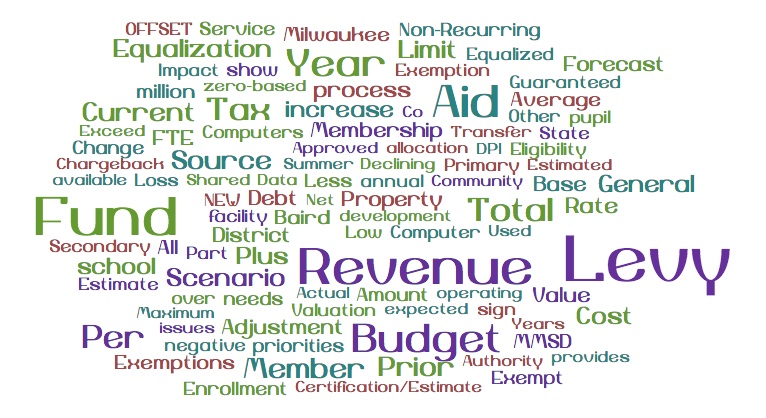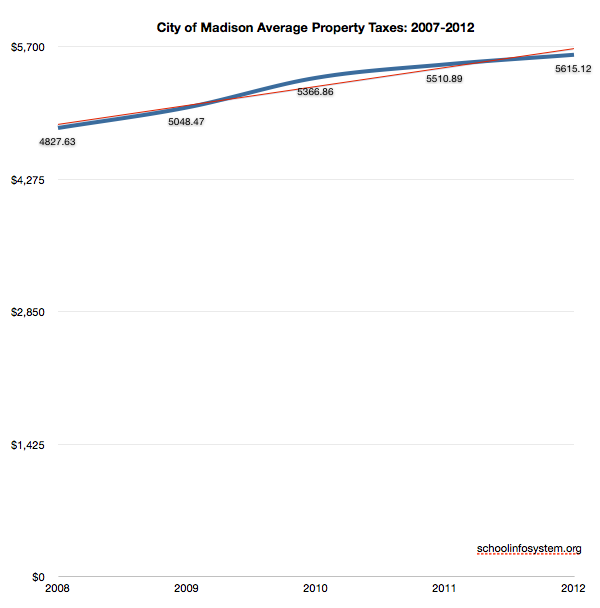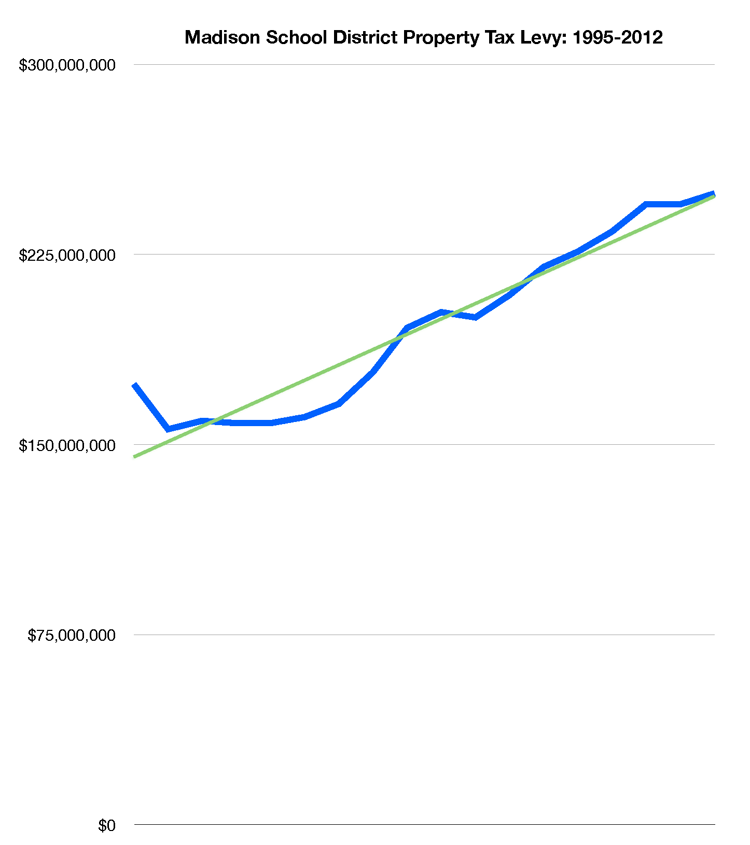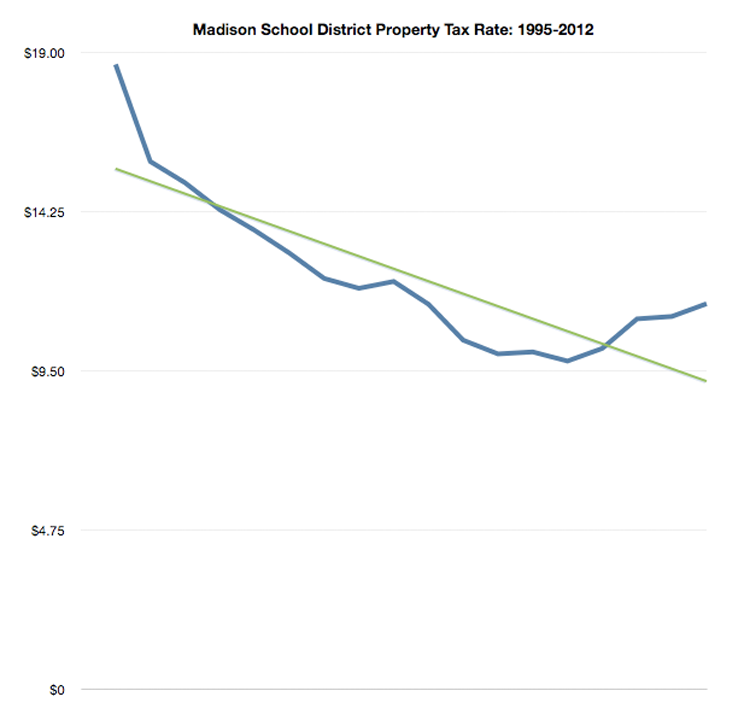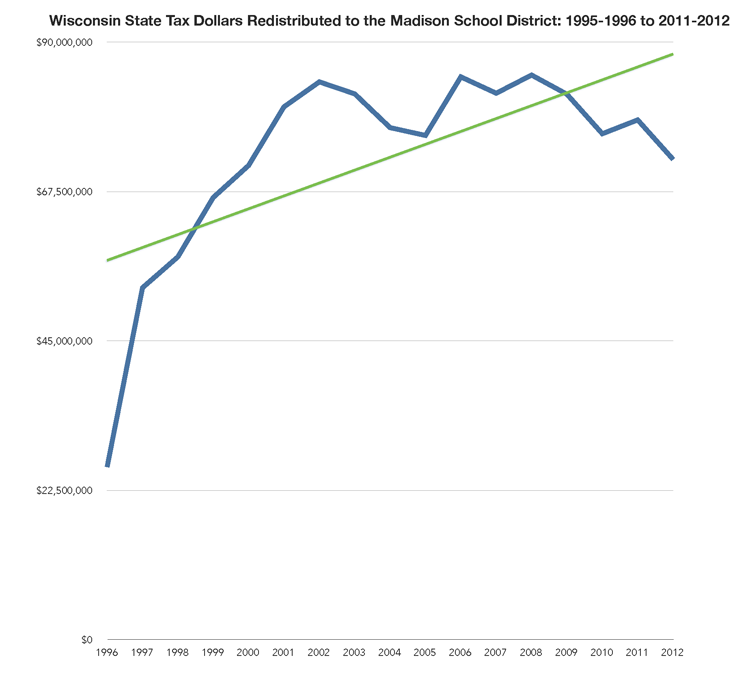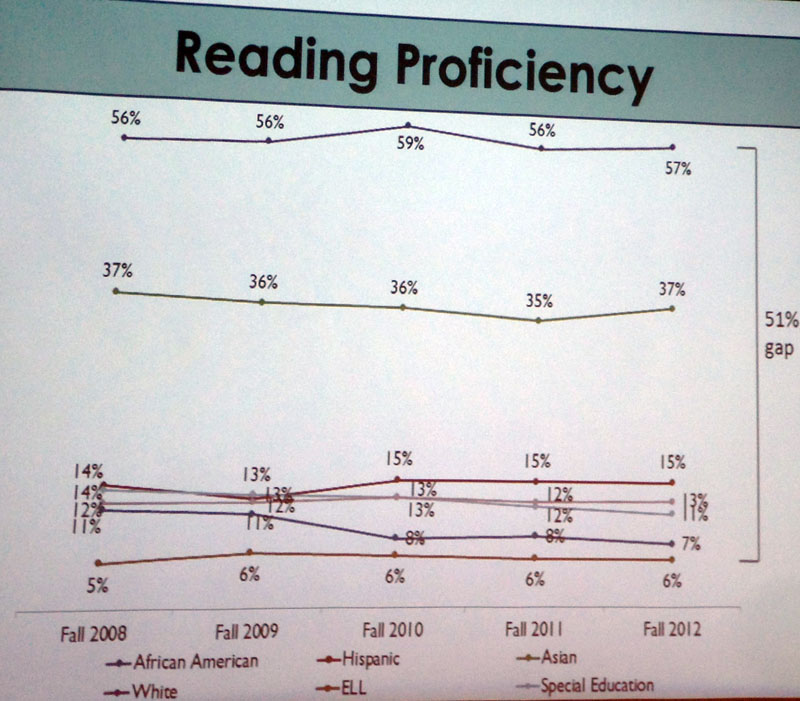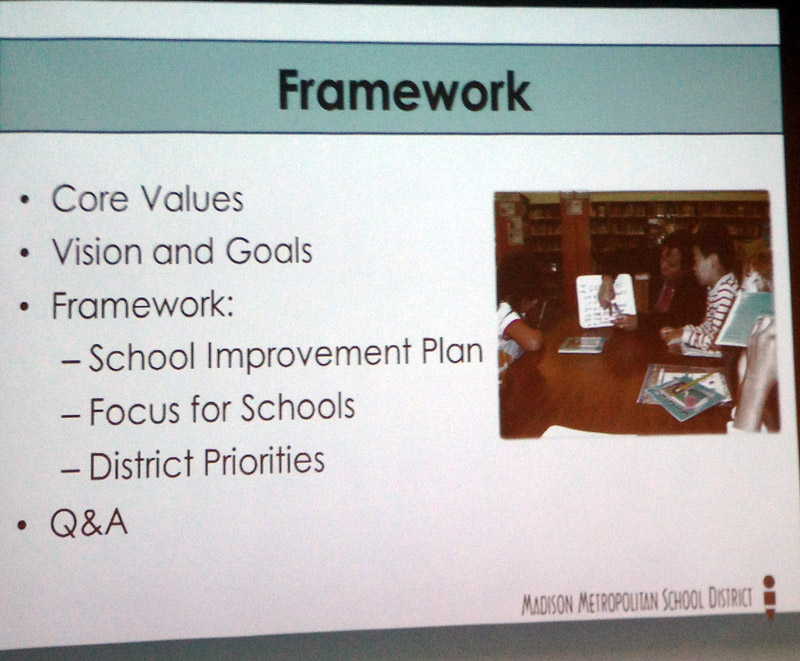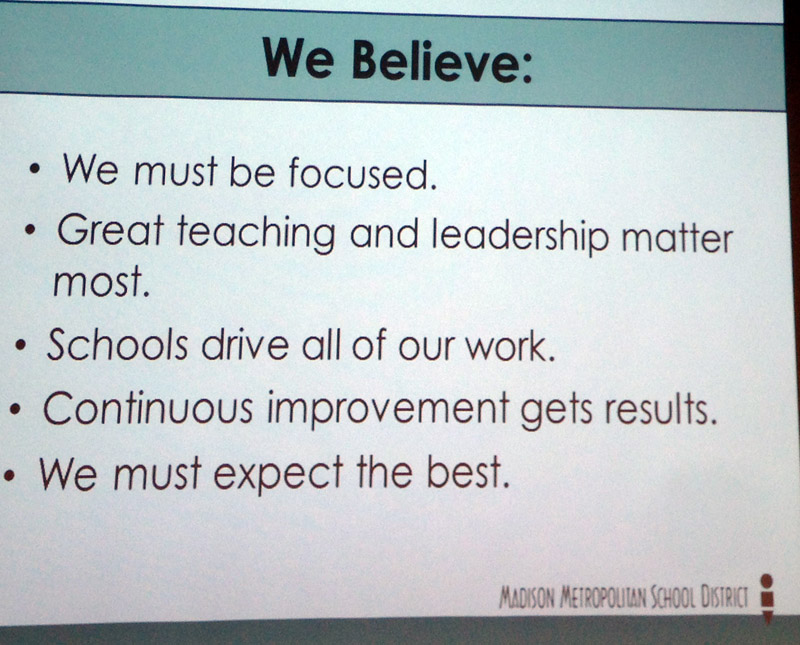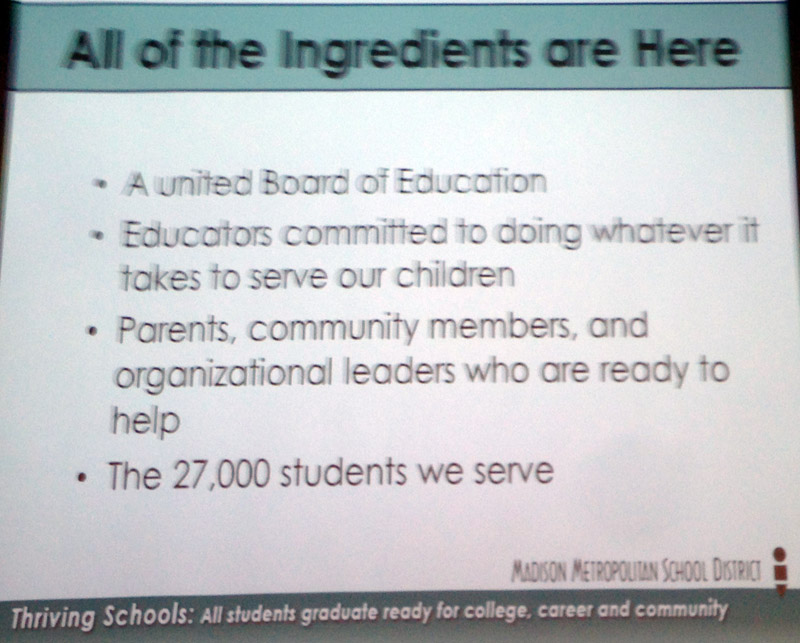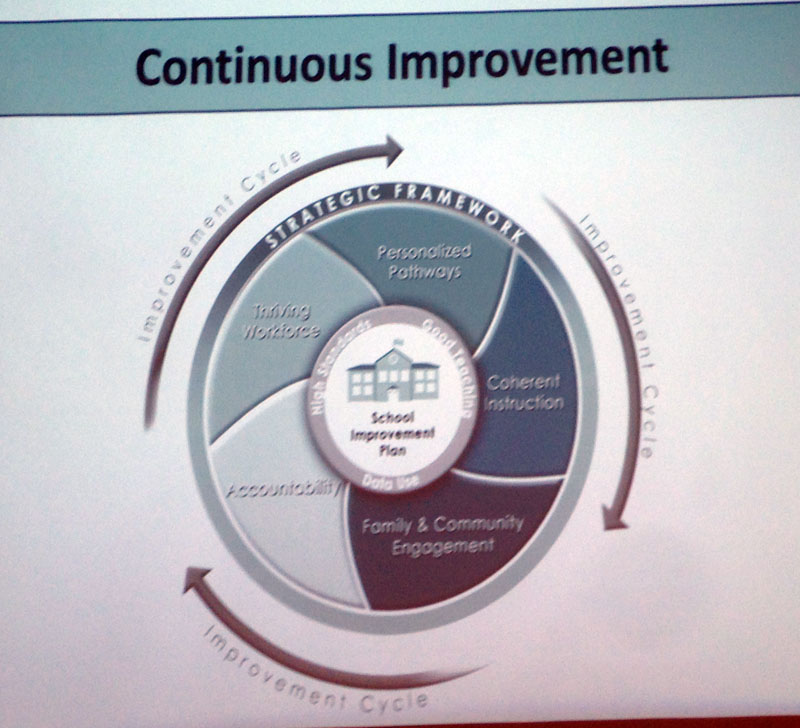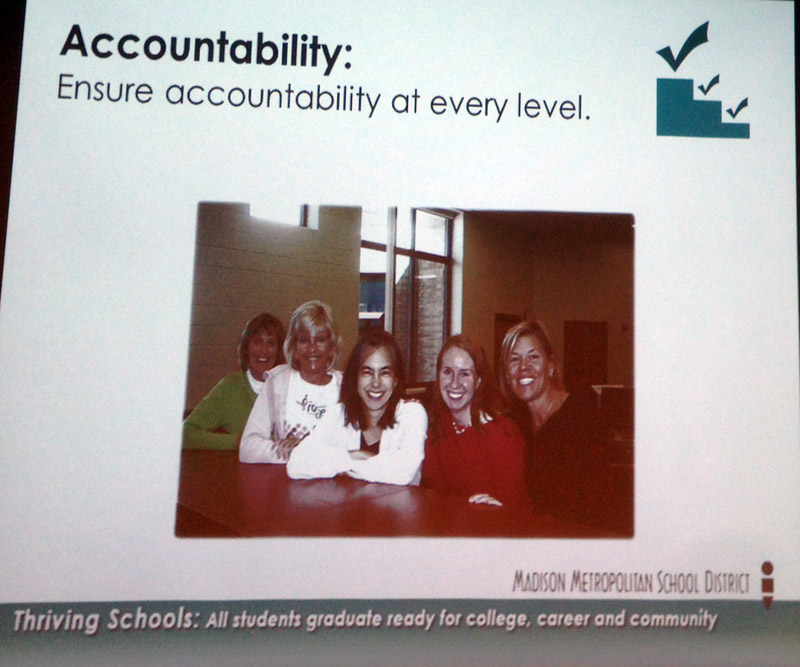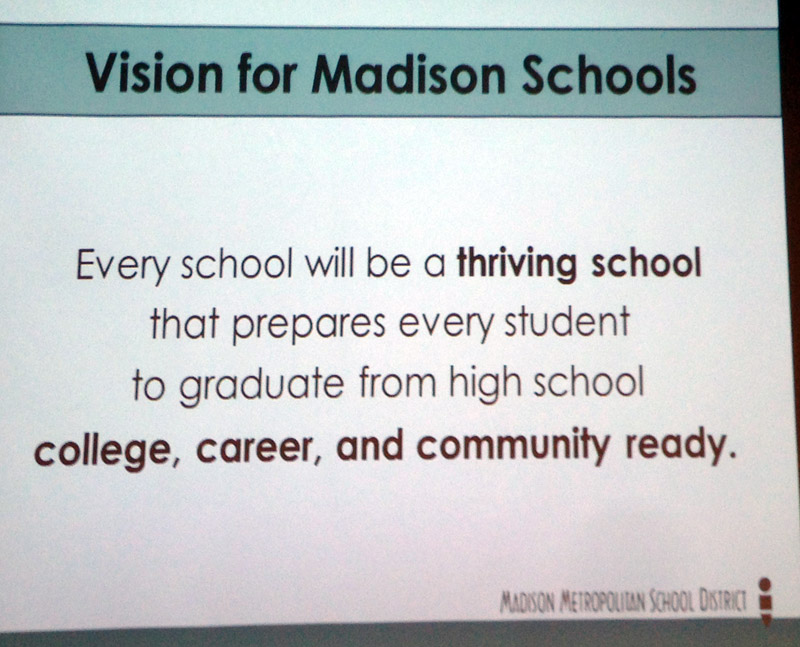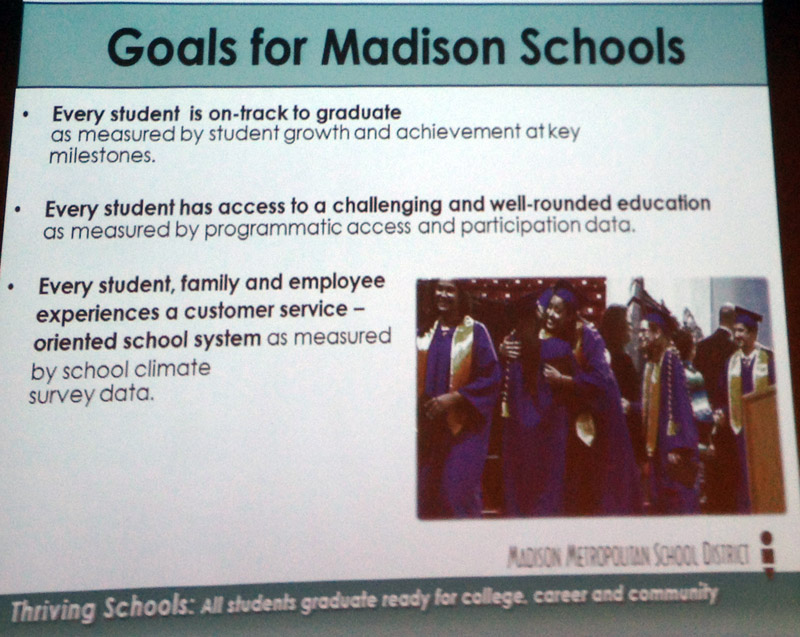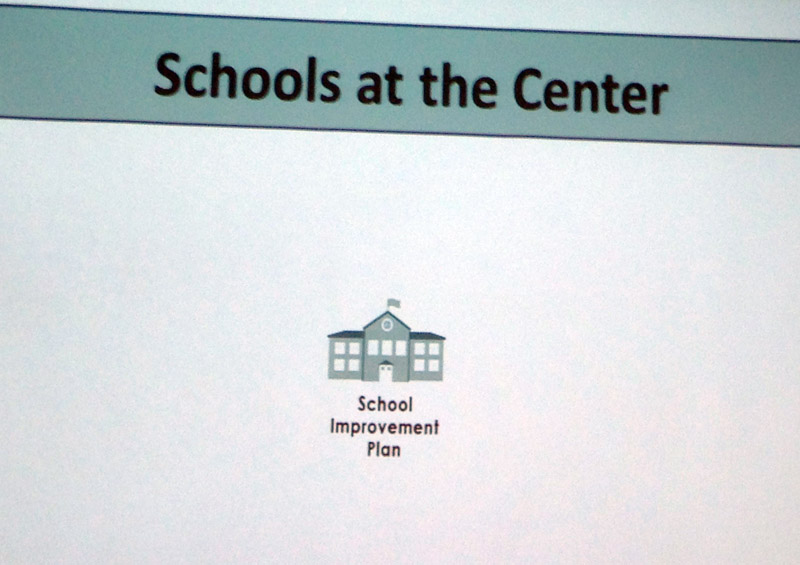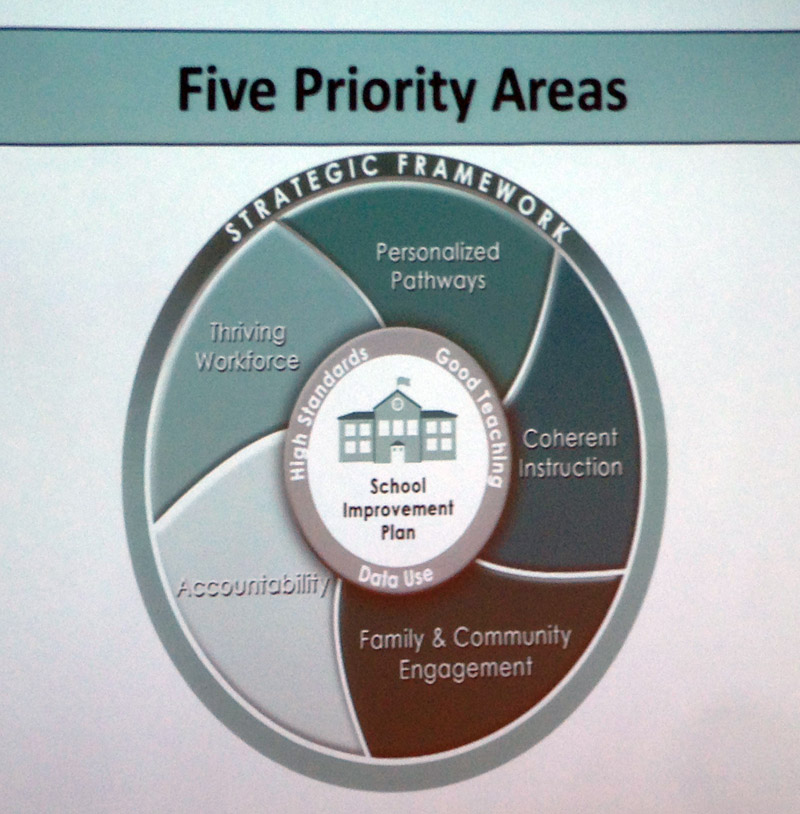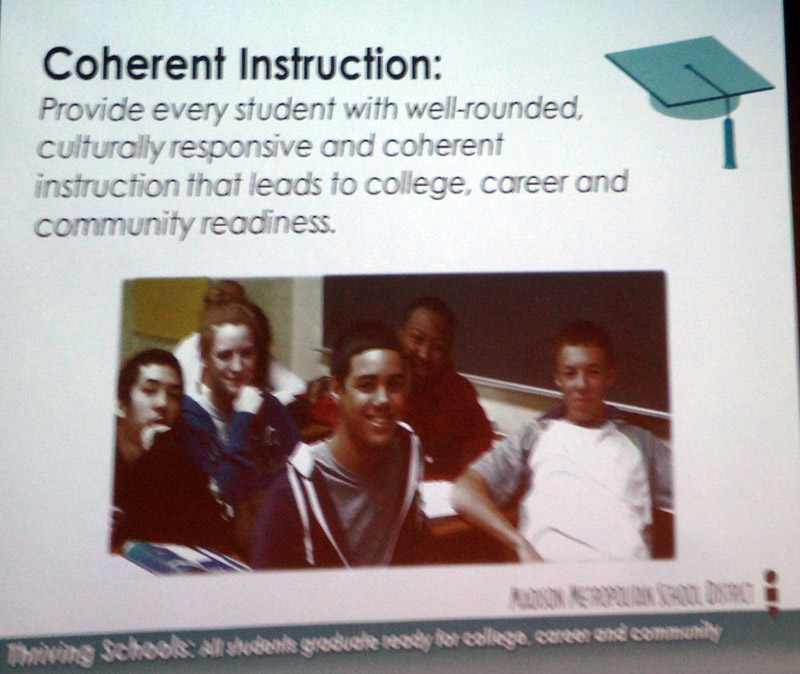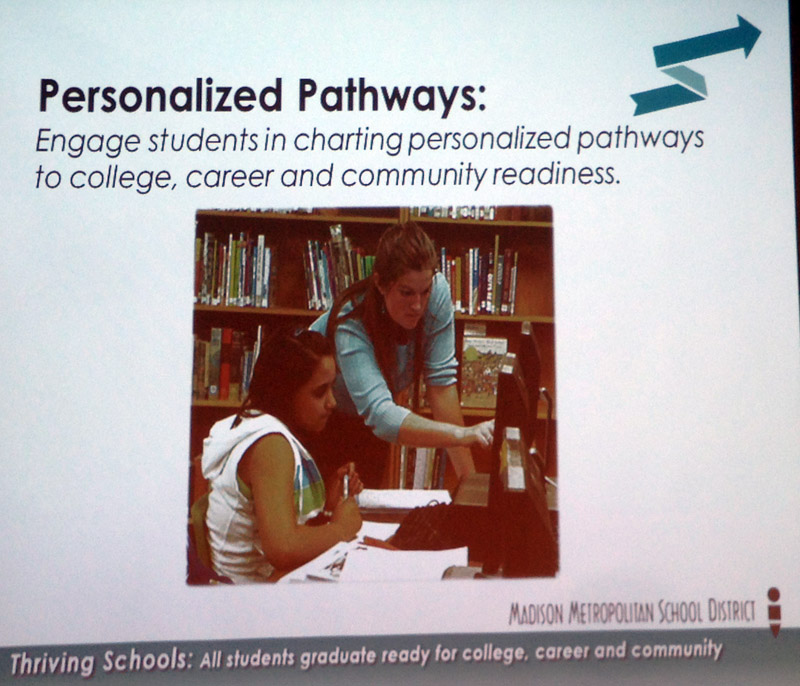Search Results for: strategic framework
Madison “Strategic Framework Process” Update; a few tweets
Supt. Cheatam on 1st year of new school improvement effort: Schools moving away from wanting to be complaint, to adapting for their students — Molly Beck (@MollyBeckWSJ) June 28, 2014 "You don’t get to opt out of doing what works in schools, but there are lots of ways that can look (for each school)." — […]
Narrative spillover: A narrative policy framework analysis of critical race theory discourse at multiple levels
Ariell Rose Bertrand, Melissa Arnold Lyon, Rebecca Jacobsen Narrative storytelling surrounds us. Narratives are especially salient in politics, as policy problems do not simply exist, but are actively created through the stories policy actors tell. Scholars introduced the narrative policy framework (NPF) to create a generalized framework for studying how policy actors use storytelling strategically […]
Civics: Deputy Attorney General Rod J. Rosenstein Delivers Remarks at the Center for Strategic & International Studies Event on Defending Rule of Law Norms
Rod Rosenstein: Good afternoon. I am grateful to the Center for Strategic and International Studies for hosting this discussion about the rule of law. A prosperous and safe society needs to vest people with the power to govern – the ability to set enforceable rules, punish violations, and act on behalf of the people. The […]
Madison Schools’ 2014-2015 Budget Forecast 1; “Same Service” or “Cost to Continue”; “intends to go beyond marginal refinements”.
Madison School District (PDF):This budget forecast and those that will follow are intended to keep the board informed as the budget development process unfolds. The forecasts also provide an opportunity for board discussion and input into important budget development issues.
MMSD’s Strategic Framework establishes the direction of the school district. The framework is supported by the annual budget, which is simply the resource strategy behind the Strategic Framework. The budget process begins with a thorough review of district priorities, current spending patterns, and outcomes. The zero- based budget process requires a critical examination of all budget practices and how those practices influence resource deployment.
Based upon our budget work thus far, we believe there are opportunities to make the staffing process more responsive to individual school needs, to shift non- personnel resources from central office budgets to school budgets, and to improve budget accuracy by clarifying and simplifying account structures. We’re excited to explore these and other opportunities throughout the 2014-15 budget process.
Zero-based Approach to Budget Development:
A zero-based approach is being used to develop the expenditure budget. Unlike an ‘historical cost’ budget or a ‘cost to continue’ budget, the zero-based process is intended to go beyond marginal refinements of existing budgets and existing structures.
For example, MMSD has used essentially the same staffing allocation process for over ten years under the ‘cost to continue’ approach, with only minor modifications along the way. While the existing allocation process is uniform and consistent, it can be improved by making it more responsive to the challenges presented by individual schools. The senior leadership team, with input from the principals, is assessing the staffing allocation process this month before any allocation decisions are put into motion in February.
The existing staff allocation process consists of a series of departmental layers, with separate staffing allocations for regular education, special education, Title 1, OMGE, pupil services, PBS, etc. We are hopeful that a more integrated and responsive staffing allocation process, beginning this year and refined continuously in subsequent years, will produce a more tailored fit for each school. The zero-based approach is designed to uncover such opportunities.
The zero-based process also includes in-depth reviews of each central office department. We are particularly interested in identifying inter-departmental overlaps, gaps, and even redundancies. We are optimistic that this effort will produce new efficiencies and help push resources from the district office into the schools.
Strategic Priorities Drive the Budget:
The resource decisions contained in the annual budget are subject to continuous review, either directly through the zero-based budget process, or indirectly through the SIP process, district surveys, targeted studies (such as the Principal Pipeline study [PDF] and High School Reform study), and several active advisory committees. These are the sources which inform the budget development process.
The Strategic Framework identifies five key priorities which are aimed at providing schools with the tools, processes and resources they need to serve children and their families better than ever before. The five priorities are: (1) Coherent Instruction, (2) Personalized Pathways, (3) Family and Community Engagement, (4) A Thriving Workforce, and (5) Accountability at All Levels.
Each of the priorities in the Strategic Framework includes a set of high-leverage actions that have cost implications. A preview of some of the major actions with cost implications, organized by Priority Area, will be developed and refined throughout the budget development process. A preview of the major actions will be presented to the Operations Work Group along with this Budget Forecast.The word cloud is interesting, particularly in light of the District’s job number one, addressing its long term disastrous reading results.
Related: numerous links on the District’s 2013-2014 budget, here. Madison spends about twice the national average per student ($15k).
2013 Madison Summer School Report
The district provided a comprehensive extended learning summer school program, K-Ready through 12th grade, at ten sites and served 5,097 students. At each of the K-8 sites, there was direction by a principal, professional Leopold, Chavez, Black Hawk and Toki, and oral language development was offered at Blackhawk and Toki. The 4th grade promotion classes were held at each elementary school, and 8th grade promotion classes were held at the two middle school sites.
Students in grades K-2 who received a 1 or 2 on their report card in literacy, and students in grades 3-5 who received a 1 or 2 in math or literacy, were invited to attend SLA. The 6-7 grade students who received a GPA of 2.0 or lower, or a 1 or 2 on WKCE, were invited to attend SLA. As in 2012, students with report cards indicating behavioral concerns were invited to attend summer school. Additionally, the summer school criterion for grades 5K-7th included consideration for students receiving a 3 or 4 asterisk grade on their report card (an asterisk grade indicates the student receives modified curriculum). In total, the academic program served 2,910 students, ranging from those entering five-year-old kindergarten through 8th grade.
High school courses were offered for credit recovery, first-time credit, and electives including English/language arts, math, science, social studies, health, physical education, keyboarding, computer literacy, art, study skills, algebra prep, ACT/SAT prep, and work experience. The high school program served a total of 1,536 students, with 74 students having completed their graduation requirements at the end of the summer.
All academic summer school teachers received approximately 20 hours of professional development prior to the start of the six-week program. Kindergarten-Ready teachers as well as primary literacy and math teachers also had access to job embedded professional development. In 2013, there were 476 certified staff employed in SLA.Jennifer Cheatham:
Key Enhancements for Summer School 2014
A) Provide teachers with a pay increase without increasing overall cost of summer school.
Teacher salary increase of 3% ($53,887).
B) Smaller Learning Environments: Create smaller learning environments, with fewer students per summer school site compared to previous years, to achieve the following: increase student access to high quality learning, increase the number of students who can walk to school, and reduce number of people in the building when temperatures are high. ($50,482)
C) Innovations: Pilot at Wright Middle School and Lindbergh Elementary School where students receive instruction in a familiar environment, from a familiar teacher. These school sites were selected based on identification as intense focus schools along with having high poverty rates when compared to the rest of the district. Pilot character building curriculum at Sandburg Elementary School. ($37,529)
D) Student Engagement: Increase student engagement with high quality curriculum and instruction along with incentives such as Friday pep rallies and afternoon MSCR fieldtrips. ($25,000)
E) High School Professional Development: First-time-offered, to increase quality of instruction and student engagement in learning. ($12,083)
F) Student Selection: Utilize an enhanced student selection process that better aligns with school’s multi-tiered systems of support (MTSS) so that student services intervention teams (SSIT) have time to problem solve, and recommend students for SLA. Recommendations are based on student grades and standardized assessment scores, such as a MAP score below the 25th percentile at grades 3-5, or a score of minimal on the WKCE in language arts, math, science, and social studies at grades 3-5. (no cost)
Estimated total cost: $185,709.00
Summer School Program Reductions
The following changes would allow enhancements to summer school and implementation of innovative pilots:
A) Professional development (PD): reduce PD days for teachers grades K-8 by one day. This change will save money and provide teachers with an extra day off of work before the start of summer school (save $49,344.60).
B) Materials reduction: the purchase of Mondo materials in 2013 allows for the reduction of general literacy curricular materials in 2014 (save $5,000).
C) Madison Virtual Campus (MVC): MVC is not a reimbursable summer school program as students are not in classroom seats. This program could be offered separate from summer school in the future (save $18,000).
D) Librarians: reduce 3 positions, assigning librarians to support two sites. Students will continue to have access to the expertise of the librarian and can utilize library resources including electronic equipment (save $12,903.84).
E) Reading Interventionists: reduce 8 positions, as summer school is a student intervention, it allows students additional learning time in literacy and math. With new Mondo materials and student data profiles, students can be grouped for the most effective instruction when appropriate (save $48,492).
F) PBS Coach: reduce 8 positions, combining the coach and interventionist positions to create one position (coach/interventionist) that supports teachers in setting up classes and school wide systems, along with providing individual student interventions. With smaller learning sites, there would be less need for two separate positions (save $24,408).
G) Literacy and Math Coach Positions: reduce from 16 to 5 positions, combining the role and purpose of the literacy and math coach. Each position supports two schools for both math and literacy. Teachers can meet weekly with literacy/math coach to plan and collaborate around curriculum and student needs (save $27,601.60).
Estimated Total Savings: $185,750.04
Strategic Framework:
The role of the Summer Learning Academy (SLA) is critical to preparing students for college career and community readiness. Research tells us that over 50% of the achievement gap between lower and higher income students is directly related to unequal learning opportunities over the summer (Alexander et al., 2007). Research based practices and interventions are utilized in SLA to increase opportunities for learning and to raise student achievement across the District (Odden & Archibald, 2008). The SLA is a valuable time for students to receive additional support in learning core concepts in literacy and math to move them toward MMSD benchmarks (Augustine et.al., 2013). SLA aligns with the following Madison Metropolitan School District (MMSD) Strategic Framework goals:
A) Every student is on-track to graduate as measured by student growth and achievement at key milestones. Milestones of reading by grade 3, proficiency in reading and math in grade 5, high school readiness in grade 8, college readiness in grade 11, and high school graduation and completion rate.
B) Every student has access to challenging and well-rounded education as measured by programmatic access and participation data. Access to fine arts and world languages, extra-curricular and co-curricular activities, and advanced coursework.
Jennifer Cheatham takes charge of Madison schools
Jennifer Cheatham doesn’t have the countenance of someone who has stepped into a maelstrom. Madison schools superintendent since April, Cheatham, 41, has already visited every school in the district and rolled out a “Strategic Framework” to tackle some of the district’s thorniest issues, including the achievement gap. So far she’s generated considerable excitement around her plans and raised hopes, even among skeptics.
Kaleem Caire has even put off plans to file a federal civil rights complaint against the district for the school board’s rejection of a charter school geared toward low-income minority students. The CEO of the Urban League of Greater Madison, which spearheaded the proposal, says he’s now content to play a “facilitative, supportive role” and get behind Cheatham’s plan to “bring order and structure” to the district.
“Personally, I’ve been hanging back, letting her get her space,” says Caire. “The superintendent should be the leader of education. All of us should be supporting and holding that person accountable.
90 Schools (2 in Dane County) Apply to Join Wisconsin Voucher Program; Madison Schools Governance Dichotomy?
Madison Superintendent Jennifer Cheatham wisely stated:
“Rather than do a lot of work on opposing the voucher movement, we are going to focus on making sure our schools are the best schools possible and the schools of choice in Madison,” Cheatham said.
Just a few days ago, the Madison School Board said this in the “strategic framework document”:
Public education is under sustained attack, both in our state and across the nation. Initiatives like voucher expansion are premised on the notion that public schools are not up to the challenge of effectively educating diverse groups of students in urban settings.
We are out to prove that wrong. With Superintendent Cheatham, we agree that here in Madison all the ingredients are in place. Now it is up to us to show that we can serve as a model of a thriving urban school district, one that seeks out strong community partnerships and values genuine collaboration with teachers and staff in service of student success.
Our Strategic Framework lays out a roadmap for our work. While some of the goals will seem familiar, what’s new is a clear and streamlined focus and a tangible and energizing sense of shared commitment to our common goals.Madison must focus, laser like on academic achievement.
Successful (Madison) achievement plan will cost plenty — just maybe not in dollars
The ill-fated charter school Madison Preparatory Academy would have cost Madison School District taxpayers about $17.5 million over five years to start addressing the district’s long-standing minority and low-income achievement gaps.
The achievement gap plan introduced by former superintendent Dan Nerad shortly after Madison Prep crashed and burned would have cost about $105 million over five years. Before being adopted, it was whittled down to about $49 million.
And the so-called “strategic framework” proposed last week by new superintendent Jennifer Cheatham?
Nada.
“The really exciting news is we have all the ingredients to be successful,” she told this newspaper.
No doubt that could be thinking so wishful it borders on delusion or, worse, code for “we’re not really all that interested in closing the gap anyway.” But it could also be a harbinger of real change.
“The framework isn’t meant to be compared to the achievement gap plan,” district spokeswoman Rachel Strauch-Nelson said. It’s “not about an array of new initiatives with a big price tag” but about focusing “on the day-to-day work of teaching and learning” and “what we know works.”
The Dichotomy of Madison School Board Governance: “Same Service” vs. “having the courage and determination to stay focused on this work and do it well is in itself a revolutionary shift for our district”.
The dichotomy that is Madison School Board Governance was on display this past week.
1. Board Member TJ Mertz, in light of the District’s plan to continue growing spending and property taxes for current programs, suggests that “fiscal indulgences“:Tax expenditures are not tax cuts. Tax expenditures are socialism and corporate welfare. Tax expenditures are increases on anyone who does not receive the benefit or can’t hire a lobbyist…to manipulate the code to their favor.
be applied to certain school volunteers.
This proposal represents a continuation of the Districts’ decades long “same service” approach to governance, with declining academic results that spawned the rejected Madison Preparatory IB Charter School.
2. Madison’s new Superintendent, Jennifer Cheatham introduced her “Strategic Framework” at Wednesday’s Downtown Rotary Club meeting.
The Superintendent’s letter (jpg version) (within the “framework” document) to the Madison Community included this statement (word cloud):Rather than present our educators with an ever-changing array of strategies, we will focus on what we know works and implement these strategies extremely well. While some of the work may seem familiar, having the courage and determination to stay focused on this work and do it well is in itself a revolutionary shift for our district. This is what it takes to narrow and eliminate gaps in student achievement.
The Madison School Board’s letter (jpg version) to the community includes this statement:
Public education is under sustained attack, both in our state and across the nation. Initiatives like voucher expansion are premised on the notion that public schools are not up to the challenge of effectively educating diverse groups of students in urban settings.
We are out to prove that wrong. With Superintendent Cheatham, we agree that here in Madison all the ingredients are in place. Now it is up to us to show that we can serve as a model of a thriving urban school district, one that seeks out strong community partnerships and values genuine collaboration with teachers and staff in service of student success.
Our Strategic Framework lays out a roadmap for our work. While some of the goals will seem familiar, what’s new is a clear and streamlined focus and a tangible and energizing sense of shared commitment to our common goals.
The bedrock of the plan is the recognition that learning takes place in the classroom in the interactions between teachers and students. The efforts of all of us – from school board members to everyone in the organization – should be directed toward enhancing the quality and effectiveness of those interactions.
There is much work ahead of us, and the results we are expecting will not arrive overnight. But with focus, shared effort and tenacity, we can transform each of our schools into thriving schools. As we do so, Madison will be the school district of choice in Dane County.Madison School Board word cloud:
North Carolina Gov. Pat McCrory, a Republican, signed a budget bill Friday that eliminates teacher tenure and–in a rare move–gets rid of the automatic pay increase teachers receive for earning a master’s degree.
The legislation targets a compensation mechanism that is common in the U.S., where teachers receive automatic pay increases for years of service and advanced degrees. Some research has suggested those advanced degrees don’t lead to improved teaching.
Although a few other states have talked about doing away with the automatic pay increase for advanced degrees, experts say North Carolina is believed to be the first state to do so.
The budget bill–which drew hundreds of teachers to the Capitol in protest earlier this week–also eliminates tenure for elementary and high-school teachers and freezes teacher salaries for the fifth time in six years.
It comes as states and districts across the country are revamping teacher evaluations, salaries and job security, and linking them more closely to student performance. These changes have been propelled, in part, by the Obama administration and GOP governors.The challenge for Madison is moving away from long time governance structures and practices, including a heavy (157 page pdf & revised summary of changes) teacher union contract. Chris Rickert’s recent column on Madison’s healthcare practices provides a glimpse at the teacher – student expenditure tension as well.
Then Ripon Superintendent Richard Zimman’s 2009 Madison Rotary speech offers important background on Madison’s dichotomy:“Beware of legacy practices (most of what we do every day is the maintenance of the status quo), @12:40 minutes into the talk – the very public institutions intended for student learning has become focused instead on adult employment. I say that as an employee. Adult practices and attitudes have become embedded in organizational culture governed by strict regulations and union contracts that dictate most of what occurs inside schools today. Any impetus to change direction or structure is met with swift and stiff resistance. It’s as if we are stuck in a time warp keeping a 19th century school model on life support in an attempt to meet 21st century demands.” Zimman went on to discuss the Wisconsin DPI’s vigorous enforcement of teacher licensing practices and provided some unfortunate math & science teacher examples (including the “impossibility” of meeting the demand for such teachers (about 14 minutes)). He further cited exploding teacher salary, benefit and retiree costs eating instructional dollars (“Similar to GM”; “worry” about the children given this situation).
“Budget Cuts: We Won’t Be as Bold and Innovative as Oconomowoc, and That’s Okay”.
45% (!) Increase in Madison Schools’ Fund 80 Property Taxes from the 2011-2012 to 2012-2013 School Year; No Mention of Total Spending
July, 2013 Madison Schools 2013-2014 Budget Presentation (PDF). Notes:
- No mention of total spending…. How might the Board exercise its oversight obligation without the entire picture?
- The substantial increase in redistributed state tax dollars (due to 4K) last year is not mentioned. Rather, a bit of rhetoric: “The 2013-14 budget development process has focused on actions which begin to align MMSD resources with the Strategic Framework Priorities and strategies to manage the tax levy in light of a significant loss of state aid.” In fact, according to page 6, the District expects to receive $46,392,012 in redistributed state tax dollars, which is a six (6%) increase over the funds received two years ago.
- The District’s fund equity (financial cushion, or reserves) has more than doubled in the past eight years, from $22,368,031 in 2005 to $46,943,263 in 2012.
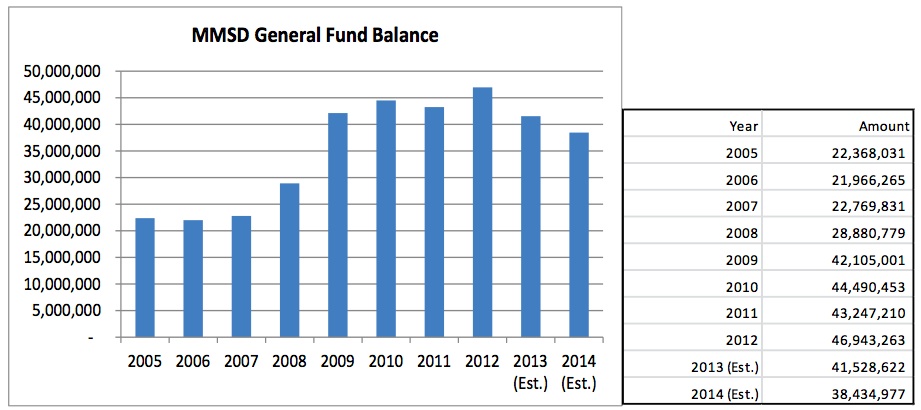
- Outbound open enrollment continues to grow, up 14% to 1,041 leavers in 2013 (281 inbound from other Districts).

- There is no mention of the local tax or economic base:

- The growth in Fund 80 (MSCR) property taxes and spending has been controversial over the years. Fund 80, up until recently was NOT subject to state imposed property tax growth limitations.
- Matthew DeFour briefly summarizes the partial budget information here. DeFour mentions (no source referenced or linked – in 2013?) that the total 2013-2014 budget will be $391,000,000. I don’t believe it:
The January, 2012 budget document mentioned “District spending remains largely flat at $369,394,753” (2012-2013), yet the “baseline” for 2013-2014 mentions planned spending of $392,807,993 “a decrease of $70,235 or (0.02%) less than the 2012-13 Revised Budget” (around $15k/student). The District’s budget generally increases throughout the school year, growing 6.3% from January, 2012 to April, 2013. Follow the District’s budget changes for the past year, here.
Finally, the document includes this brief paragraph:
Work will begin on the 2014-15 early this fall. The process will be zero-based, and every line item and FTE will be carefully reviewed to ensure that resources are being used efficiently. The budget development process will also include a review of benefit programs and procurement practices, among other areas.
One hopes that programs will indeed be reviewed and efforts focused on the most urgent issues, particularly the District’s disastrous reading scores.
Ironically, the recent “expert review” found that Analysis: Madison School District has resources to close achievement gap. If this is the case (and I agree with their conclusion – making changes will be extraordinarily difficult), what are students, taxpayers and citizens getting for the annual tax & spending growth?
I took a quick look at property taxes in Middleton and Madison on a $230,000 home. A Middleton home paid $4,648.16 in 2012 while a Madison home paid 16% more, or $5,408.38.
DIE and the taxpayer supported Madison School District
Scott Girard: An effort that began in summer 2021 to gauge the Madison Metropolitan School District’s equity work found that students, parents and staff are aware of some district efforts toward diversity, equity and inclusion but want more involvement and more communication with district administration. The district partnered with Jerlando Jackson, now the dean of the College […]
(some) Madison School board COmmentary on Planned West High School Grading Changes
So in a district where this was previously implemented, um, failure went down, but so did rates of students earning A’s and B’s and our level classes, um, and teachers found that it had eroded some students’ motivations. So I was wondering if that’s a concern at all in how the district might address that. […]
School Board chooses Matthew Gutiérrez as next Madison superintendent
Scott Girard: Gutiérrez said in the release he was “honored and humbled to be selected,” touting community engagement and support to teachers, students and families as “top priorities.” “During my visit to Madison, I was extremely impressed with the high level of community involvement and how community members hold education as a top priority,” he […]
Madison teachers gather at pep rally for racial equity
Steven Elbow: Some 5,000 educators from the district’s 50 schools gathered at the Alliant Energy Center Monday to start their workweek with the three-hour event, which featured Madison School District officials, a student poet and Bettina Love, a popular speaker on issues of race and education. The event highlighted the importance the district has placed […]
Gifted Education in Massachusetts: A Practice and Policy Review
Dana Ansel: Last year, the Massachusetts Legislature decided that the time had come to understand the state of education that gifted students receive in Massachusetts. They issued a mandate for the Department of Elementary and Secondary Education to review the policy and practices of education in public schools for gifted students as well as for […]
At a Loss for Words How a flawed idea is teaching millions of kids to be poor readers
Emily Hanford: For decades, schools have taught children the strategies of struggling readers, using a theory about reading that cognitive scientists have repeatedly debunked. And many teachers and parents don’t know there’s anything wrong with it. “THE DATA CLEARLY INDICATE THAT BEING ABLE TO READ IS NOT A REQUIREMENT FOR GRADUATION AT (MADISON) EAST, ESPECIALLY […]
Madison must address its crisis of illiteracy
Laurie Frost: I am grieving the death of Toni Morrison. I admired Morrison deeply because she had the courage to speak truth with unflinching clarity, and because she did so with a magnificent lyricism. In the wake of Morrison’s passing, I have been feeling doubly sad because I know the vast majority of our black […]
Commentary on Rhetoric: Departing Madison Superintendent Jennifer Cheatham
David Blaska: The news media loves to imagine itself as the afflicter of the comfortable, David with his slingshot v. Goliath. “J’accuse!” in 96-point bodoni bold type. Edward R. Murrow starring down Tailgunner Joe. Bogart starting the presses in Deadline USA. Woodward and Bernstein. In Madison, too many news media “gatekeepers” just want to be […]
Departing Madison Superintendent Jennifer Cheatham WORT FM Interview
mp3 audio – Machine Transcript follows [Better transcript, via a kind reader PDF]: I’m Carousel Baird and we have a fabulous and exciting show lined up today. Such a fabulous guy sitting right across from me right here in the studio. Is Madison metropolitan school district current superintendent? She still here in charge of all […]
Lead by example: If you teach children to disrespect teachers, they will do so
Michael Cummins: aybe kids are disrespecting their teachers because adults have taught them to. If, as Muldrow asserted during her campaign, the “theme” in Madison education is “how do we blame black children, how do we hurt black children, how do we get rid of black children, how do we not listen to black children,” […]
Jennifer Cheatham resigning as Madison school superintendent
Dylan Brogan: Jennifer Cheatham is expected to resign as superintendent of the Madison school district at a news conference Wednesday. Isthmus confirmed the news with three members of the Madison school board and other sources. It is not known when Cheatham, who has led the district since 2013, will step down. Rachel Strauch-Nelson, district spokesperson, […]
A crack in Madison’s non diverse K-12 governance model: independent charter One City Schools
Logan Wroge: In a previous attempt at a charter school, Caire proposed the Madison Preparatory Academy, which would have served a similar population as One City Schools, but would have been for grades 6-12. The Madison School Board rejected the idea in December 2011. Caire sought to bring his “change-maker” approach to the Madison School […]
Madison’s Taxpayer Supported K-12 School Superintendent Cheatham’s 2019 Rotary Talk
2013: What will be different, this time? Incoming Superintendent Jennifer Cheatham’s Madison Rotary Talk. December, 2018: “The data clearly indicate that being able to read is not a requirement for graduation at (Madison) East, especially if you are black or Hispanic” 2005: When all third graders read at grade level or beyond by the end […]
K-12 Governance Diversity: the 2019 Madison School Board Election, Parental Choice and our long term, disastrous reading results
Chris Rickert: Endorsements in this month’s School Board primary from the influential Madison teachers union include one for a candidate who sends her two children to the kind of charter school strongly opposed by the union. Madison Teachers Inc. this week endorsed Ali Muldrow over David Blaska, Laila Borokhim and Albert Bryan for Seat 4; […]
2019 Madison School Board Candidate Events; Kaleem Caire on Accountability
I’ve added the following audio recordings to the 2019 Madison School Board Candidate page. WORT FM Candidate discussion 2.5.2019 Cris Carusi and Kaleem Caire [mp3 audio] Mr. Caire: “If we don’t reach our benchmarks in five years, they can shut us down”. There is no public school in Madison that has closed because only 7 […]
Meet the ‘crazy’ moms saying one of Pa.’s top-rated school districts can’t teach reading
Avi Wolfman-Arent: The small parent rebellion forming in one of Pennsylvania’s wealthiest school districts began at a Starbucks in suburban Chester County. Over coffee, three moms — Kate Mayer, Jamie Lynch, and Wendy Brooks — swapped stories about how their kids struggled to read as they moved through the Tredyffrin/Easttown school district, located about 30 […]
Advocating status quo, non diverse K-12 Madison Schools Governance
Negassi Tesfamichael: MTI cited Carusi’s opposition to voucher and independent charter schools in its endorsement. “Carusi is opposed to vouchers and independent charter schools and strongly believes that we need to continuously work to improve our public schools, rather than support alternatives,” MTI’s endorsement said. Caire’s One City Schools, which expanded from One City Early […]
Minnesota’s persistent literacy gap has lawmakers looking for ways to push evidence-based reading instruction
Erin Hinrichs: “Minnesota has a state of emergency regarding literacy. I’m very disappointed with where we’re at right now with the persistent reading success gap between white students and students of color,” he said Wednesday. “We are not making adequate progress, and the future of tens of thousands of our students is seriously at risk […]
UW rejects application for independent Madison charter school
Chris Rickert: According to emails released to the State Journal under the state’s open records law, Superintendent Jennifer Cheatham on Sept. 10 asked her chief of staff, Ricardo Jara, and other front-office officials whether Arbor was “worth trying to stop? Or change somehow? If so, how?” Cheatham expressed the district’s opposition to the school in […]
“One issue state officials say they have detected as they monitor the effectiveness of the READ Act is that not all teachers are up to date on how best to teach reading.”
Christopher Osher: But districts are free to use their READ Act per-pupil funds on whatever curriculum they want, even on interventions researchers have found ineffective. “Typically, as with any education policy, we’re only given so much authority on what we can tell districts to do and what we monitor for,” Colsman said in an interview […]
Commentary on the 2019 Madison School Board candidates
Negassi Tesfamichael: With the Madison School Board primary election less than a month away, a crowded field of nine candidates will make their case to voters in the coming weeks, starting with a forum on Feb. 5. Here’s a closer look at how candidates are making their case to voters. Seat 3 Kaleem Caire, an […]
2019 Madison School Board Election: Madison Teachers Union Candidate Questions
Negassi Tesfamichael: Nearly all current candidates for the Madison School Board have started to make their case to voters and potential endorsers as the primary election heats up. That included answering questions from Madison Teachers Inc., the city’s teachers’ union. Nine candidates are running for three seats on the seven-person School Board. MTI executive director […]
deja vu: Madison’s long term, disastrous reading results
Laurie Frost and Heff Henriques: Children who are not proficient readers by fourth grade are four times more likely to drop out of school. Additionally, two-thirds of them will end up in prison or on welfare. Though these dismal trajectories are well known, Madison School District’s reading scores for minority students remain unconscionably low and […]
2019 Election: Why are all of the Madison School Board seats at-large? (Curious statute words limiting legislation to Madison)
Negassi Tesfamichael m: Why are all of the Madison School Board seats at-large? The answer lies in state law. Tucked into a section of state statutes about how school boards and districts are organized is a requirement that applies directly to MMSD. The requirement says that unified school districts — such as MMSD — “that […]
Re-thinking integration, Parents and the Madison Experience
The Grade: There are two main reasons why Eliza Shapiro’s New York Times piece, Why Black Parents Are Turning to Afrocentric Schools, is this week’s best. The first is that it’s a really well-written piece of journalism. The second is that it addresses an important and previously under-covered topic: parents of color interested in alternatives […]
Madison Teachers Union and the 2019 school board election: Commentary, Spending and Academic Results
Chris Rickert: The questionnaire also includes several questions about teachers’ ability to have a say in their compensation and working conditions, and asks whether the candidates “support the reinstatement of collective bargaining rights for all public employees (currently prohibited by Act 10)?” Act 10 is the controversial 2011 law passed by Republicans that stripped most […]
Routing Around Madison’s Non-Diverse K-12 Governance Model
Chris Rickert: In March 2016, Cheatham said that it was her intent to make OEO “obsolete — that our schools will be serving students so well that there isn’t a need.” Since then, the district has tried to keep tabs on any new charter proposals for Madison, going so far as to send former School […]
Skylar Croy withdrawing from 2019 Madison School Board race, name will still appear on ballot
Negassi Tesfamichael: Madison School Board candidate Skylar Croy said in an interview with the Cap Times Friday that he would suspend his campaign and withdraw from the Seat 3 race, citing personal reasons. Because Croy turned in his verified nomination signatures on Wednesday to the city clerk’s office, the third-year University of Wisconsin law student’s […]
“Perhaps the real pipeline is that the Madison School District is unable to teach too many students of color basic reading skills”
Merrilee Pickett: I attended a Madison City Council police oversight committee meeting and was surprised that I was one of only a handful of citizens in attendance. The others in attendance were the usual people who are quoted in the local media, and who evidently have great influence over members of the City Council. Was […]
2019 Madison School Board Candidates; Competitive Races!
Seat 3 Kaleem Caire, 7856 Wood Reed Drive, Madison Cristiana Carusi, 5709 Bittersweet Place Skylar Croy, 502 N. Frances St., Madison Seat 4 David Blaska, 5213 Loruth Terrace, Madison Laila Borokhim, 2214 Monroe St., Madison Albert Bryan, 4302 Hillcrest Drive, Madison Ali Muldrow, 1966 East Main St., Madison Seat 5 TJ Mertz, 1210 Gilson St., […]
“Folks, we have a huge reading crisis”
Alan Borsuk: 20 percent. That is roughly the percentage of Milwaukee students, both in public and private schools, who were rated proficient or advanced in reading in tests in spring 2018 — and it’s about the same figure as every year for many years. Folks, we have a huge reading crisis. There may be more […]
“The data clearly indicate that being able to read is not a requirement for graduation at (Madison) East, especially if you are black or Hispanic”
Laurie Frost and Jeff Henriques: Dear Editor: We read “The new math: how data is changing the way teachers teach” with great interest. We learned that for freshmen at East High School, coming to school 90 percent of the time, having a 3.0 grade point average, and having no more than two failing grades is […]
School Board member James Howard not running for re-election (2019)
Negassi Tesfamichael: The three-term School Board member said he is most proud of helping further MMSD’s work on diversity and inclusion. Howard said he wished the School Board could have approved several more major initiatives that he said would have helped students of color. Howard, the only black man on the School Board, is currently […]
Who’s running for Madison School Board (so far)? 2019
Negassi Tesfamichael: The Madison School Board’s general election is still nearly five months away, but candidates have been jumping into the race the past few weeks at a rapid pace. Three seats on the seven-person School Board will be on the ballot this spring, and each seat will be contested. Here’s what you need to […]
Madison School Board needs Blaska’s voice (2019 election)
Gary L. Kriewald: It appears we are headed toward a School Board election that promises something new: a candidate whose voice will do more than add sound and fury to the liberal echo chamber that is Madison politics. David Blaska has the background, experience and most importantly the courage to expose the abuses and neglect […]
Organization vs Mission: Madison’s legacy K-12 Governance model vs Parent and Student choice; 2018
Chris Rickert: Meanwhile, in a sign of how the Madison district is responding to subsequent charter applications, former Madison School Board member Ed Hughes said he went before the Goodman Community Center’s board on the district’s behalf on Sept. 24 to express the district’s opposition to another proposed non-district charter school, Arbor Community School, which […]
TJ Mertz to run for re-election to Madison School Board (2019)
Negassi Tesfamichael: Mertz said he will look to highlight his record during the campaign, and also talk about building trust and accountability in the Madison Metropolitan School District. “In order for us to provide our students the education they deserve, we need to work to repair the breakdowns of trust we see manifested in the […]
Kaleem Caire adds to political diversity in Madison School Board races (2019)
Chris Rickert: Caire, 47, is a Madison native who in 2011 mounted a contentious and ultimately unsuccessful attempt to get the School Board to approve what was initially conceived as an all-male public charter school serving those who have long struggled in Madison’s traditional public schools: poor children and children of color. In an interview, […]
Kaleem Caire announces run for Madison School Board (2019)
Negassi Tesfamichael: “I’ve been working in the field ever since,” Caire said in an interview with the Cap Times. “The number one thing is that I’ve been really frustrated about how little attention is focused on young people in our city and country.” One City Schools, which expanded from One City Early Learning Center, is […]
Civics, K-12 Governance & Madison’s long term, disastrous reading results: The Smart Technocats And Benevolent Dictators Always Fail
Points and figures Have you heard of Bill Easterly? He is an economics professor at NYU. He wrote a book, The Tyranny of Experts. I’d suggest that you read it. It seems as though everyone is quoting from Hillbilly Elegy these days and I think I’d rather see them pick up the ethos of this […]
Outspoken conservative blogger to run for seat on liberal Madison School Board (2019)
Chris Rickert: It starts with safety and discipline,” said Blaska, who on his blog has been sharply critical of the district’s deliberations over whether to continue stationing Madison police officers in the high schools. Despite raucous protests by the activist group Freedom Inc., a committee of the board recommended on Sept. 26 that the police […]
Cris Carusi announces run for Madison School Board 2019
Negassi Tesfamichael: Carusi, who has been a district parent for more than a decade and was an active parent-teacher organization member, will seek to unseat incumbent School Board member Dean Loumos, who currently holds Seat 3. Carusi ran in the 2017 primary for Seat 6, which opened up after current mayoral candidate Michael Flores decided […]
Ananda Mirilli is running for Madison School Board (2019)
Negassi Tesfamichael: A second candidate has announced that she will run for a seat on the Madison School Board this spring. Ananda Mirilli, who first ran for School Board in 2013, filed paperwork with the city clerk’s office Wednesday announcing she will run for Seat 5, which is currently held by TJ Mertz. Mirilli finished third in […]
Madison Wisconsin High School Graduation Rates, College Readiness, and Student Learning
Laurie Frost and Jeff Henriques 2MB PDF full presentation to the Simpson Street Free Press: Individual slides (tap for larger versions): More here. Related: The Madison School District’s “Strategic Framework”. 2006: “They’re all Rich White Kids, and they’ll do just fine, NOT!” 2013: Madison’s long term, disastrous reading results. Madison spends far more than most […]
Seeing the Forest: Unpacking the Relationship Between Madison School District (WI) Graduation Rates and Student Achievement
Laurie Frost and Jeff Henriques [PDF]: Dear Simpson Street Free Press: Thank you for leading the way in looking more closely at recent reports of an increase in MMSD minority student graduation rates and related issues: http://simpsonstreetfreepress.org/special-report/local-education/rising-grad-rates http://simpsonstreetfreepress.org/special-report/local-education/act-college-readiness-gap Inspired by your excellent work, we decided to dig deeper. We call the result of our efforts […]
Madison School District vows to do better for African-American students
Kelly Meyerhofer: The Madison School District’s new long-term plan looks vaguely similar to its predecessor, a strategic framework produced in 2013. Two of three overarching goals share similar language. The third goal, however, stands out from its 2013 counterpart by explicitly vowing to do better for African-American students. Superintendent Jennifer Cheatham said she attended nearly […]
Madison School District Spending June 25, 2018 Update
Madison School District Administration (4.7MB PDF): Superintendent Jennifer Cheatham: In the Madison Metropolitan School District (MMSD), we have a common vision. We want every school to be a thriving school that ensures every student graduates ready for college, career, and community. Thanks to our community’s support, we are in a sound financial position to make […]
Commentary On Personalized Pathways
Neil Heinen: We were sold on the Madison School District’s Personalized Pathways program when Superintendent Jen Cheatham first proposed it. But if any additional persuasion was needed we direct your attention to the news that both UW-Madison and Edgewood College have joined Madison College as partners in the program to get high school students thinking […]
Madison School District Mid Year Review
Madison School District Administration: We’re halfway through the school year and have some exciting updates to share with you. In this mid-year review, we’ll start by revisiting our vision for all Madison students (you can hear Superintendent Jennifer Cheatham describe that here), catch up with the graduates featured in our 2015-16 Annual Report, hear about […]
Madison School District Board Retreat Presentation Slides
Madison School District Administration (PDF): 8:00 Opening Remarks 8:15 Dialogue: Decision-making for Equity EquityPolicyBeliefStatementRevisions 9:15 BREAK 9:30 Dialogue: Five Year Outlook, school year 17/18 focus Re-entry Planning 17/18 focus areas 17/18 District & SIP Goals 10:15 Strategic Framework Priority Project Update & Discussion 11:15 Closing Remarks 11:30 Lunch February 18, 2017 agenda (PDF).
Madison Schools’ English Language Learner Monitoring Snapshot 2015-16
Madison School District Administration (PDF): As part of MMSD’s Evaluation and Review Cycle, major plans in the district have an anual monitoring snapshot of simple and consistent quantitative data. This snapshot shows key characteristics of students in the group indicated above, as well as progress on Strategic Framework Milestones and indicators from the School Targeted […]
Athletics and Student Outcomes: The Madison School District
The Effect of Interscholastic High School Athletics Participation on Student Outcomes for the Classes of 2012-2014 (PDF): Key Findings Across MMSD, approximately 50% of all students in the 2012, 2013, and 2014 graduating cohorts participated in interscholastic athletics at some point during their high school careers. Of those participants, 11% participated for one year and […]
“In addition, we see that very few schools actually achieved growth improvements of 5% or more, with changes in growth generally clustering around 0%.” Slide updates on Madison’s $500M+ Government School System
PDF slides from a recent Madison School District Quarterly Board retreat. Readers may wish to understand “MAP” or “Measure of Academic Progress” [duck duck go SIS 2012 Madison and Waunakee results] Using MAP for Strategic Framework Milestones and SIP Metrics Feedback from various stakeholders has led us to examine the use of MAP (Measures of […]
Reviewing and Renewing Madison’s Wright Middle School and Badger Rock Middle School “Charters”
Superintendent Jennifer Cheatham (PDF): Issue: The charter contracts for Badger Rock Middle School (BRMS) and James C. Wright Middle School (Wright) expire on June 30, 2016. Per respective contracts, the Board is required to make a decision whether or not to renew Wright’s contract at least six months before the contract’s expiration and BRMS’ contract […]
Madison Schools’ Governance Priorities (Reading???)
Meeting Objectives 1. Reflect on the National Equity Project work 2. Review Strategic Framework implementation progress through an equity lens 3. Update the Board on the Priority 3: Family, Youth, and Community Engagement theory of action 4. Discuss strategy examples: Report Cards Meeting Handouts Targeted Universalism Madison has long tolerated disastrous reading results.
Madison Government Schools’ Vision 2030 Research Report
PDF Slides Madison has changed significantly in the past few decades, and likely will continue to change in the years to come. Since 1990, residents in poverty and residents of color have increased citywide, while MMSD students receiving free/reduced lunch and MMSD students of color have increased even faster. Looking forward to 2030, Madison likely […]
Madison Schools’ Vision 2030
Strategic Framework includes vision and strategies Vision 2030 is not a strategy; instead, it paints a vivid and aspirational picture of what MMSD can be Vision will work in concert with our Framework to guide our actions, both big and small Grounded in 2015-16 4K students – Class of 2029 MMSD Vision 2030: Prepared, Empowered […]
Madison’s Teacher Team Toolkit
Madison School District (PDF): Purpose Overview “Great teaching matters most! Great teaching, when well defined and supported, benefits all students and should serve as the foundation for success” (MMSD Strategic Framework, 2013). This will serve as the focus of our teacher teamwork. Teacher teams will use data to inform their long-term and short-term planning and […]
Madison School District’s 2015-2016 Budget Goals & Priorities (Publish Total Spending?)
Madison School District (PDF): A. Alignment to Strategic Framework- In our vision to make every school a thriving school that prepares every student to be ready for college, career and community, these budget resources support the district’s goals and priorities as defined in our Strategic Framework. B. More equitable use of resources- As opposed to […]
Advanced Curriculum Review in the Madison School District
As we begin the next portion of the presentation, I want to remind you of the three overarching goals in the Strategic Framework. Our Annual Report, which was distributed a few months ago, addressed and detailed progress around our first goal stating that every student is on track for graduation. Tonight’s presentation represents our first […]
Our annual education report delves into the district’s second year of a unified direction
Sean Kirby: While the District’s first annual report showed some academic improvement overall, it also identified “subgroups”—African American and Latino students and students with disabilities—as part of a more targeted effort to ramp up and enrich the education experience. To reach them, the district is working with community leaders and groups, such as Madison Partners […]
Madison Schools’ “Special Education Audit” Document
Consultants for the Madison Schools (PDF): The leadership has established a director of MTSS with the C&I department, which is critical from both functional and symbolic purposes. District leadership has a strong Strategic Framework in place to support the MTSS process with the present focus on reading, with subsequent focus on writing and numeracy. The […]
Madison Schools’ 2014-2015 Budget Update; Assumes 16% Increase in Redistributed State Tax Dollars, 2.11% Property Tax Growth; About $400,000,000 for 27,186 students
The Madison School District (600K PDF): This is the fourth and final installment of the series of updates designed to keep the board informed during the 2014-15 MMSD budget development process. The first update reviewed the budget process, priorities, and expected revenues. The second update explained our goals for a school-based staffing process that was […]
A Positive Madison Magazine Article on Superintendent Jennifer Cheatham
Deanna Wright: Last April, and to a remarkable amount of fanfare, Jennifer Cheatham became the superintendent of the Madison Metropolitan School District. From the very start, the community has opened its arms to welcome her. When I interviewed her for Madison Magazine TV last month, I was aware that the community, especially parents of color, […]
Effective School Maintenance Spending?
Madison Superintendent Jennifer Cheatham is proposing a $39,500,000 November, 2014 maintenance referendum (page 38 of 39), according to her “Strategic Framework Progress” update [1MB PDF]. Questions remain on where the money went from the $26,200,000 2005 maintenance referendum. The District has, according to page 3, launched a “zero based budget”. I am hopeful that the […]
This report-Make Our Children Healthy Again: Assessment— is a call to action
MAHA Commission It presents the stark reality of American children’s declining health, backed by compelling data and long-term trends. More importantly, it seeks to unpack the potential dietary, behavioral, medical, and environmental drivers behind this crisis. By examining the root causes of deteriorating child health, this assessment establishes a clear, evidence- based foundation for the […]
Undiminishing school governance: investigating ‘governance maturity theory’ for school governing bodies
Andrew Clapham Organizational maturity can inform decision-making, build strategy and underpin development. This paper argues that ‘Governance Maturity Theory’ (GMT) can act as a developmental modality for school Governing Bodies – and offers an alternative to disciplinary mechanisms such as inspections. Evidence generated by governors, Chairs, and Governance Professionals of Boards in England were used […]
Escalation Risks from Language Models in Military and Diplomatic Decision-Making
Juan-Pablo Rivera, Gabriel Mukobi, Anka Reuel, Max Lamparth, Chandler Smith, Jacquelyn Schneider Governments are increasingly considering integrating autonomous AI agents in high-stakes military and foreign-policy decision-making, especially with the emergence of advanced generative AI models like GPT-4. Our work aims to scrutinize the behavior of multiple AI agents in simulated wargames, specifically focusing on their predilection to take escalatory actions […]
Is There a Future for U.S. Campuses in China?
Liam Knox: When Duke University opened its campus in Kunshan, China, almost a decade ago, it was following on the heels of a movement of institutions eager to establish beachheads in the country during the political and economic détente of the mid-2010s. But at a meeting with faculty and staff in November, Duke president Vincent […]
“At NC State, in 2020-21, no less than $131 million more was spent on administrative (i.e., non-teaching) positions than on teaching ones”
Michael Behrent: Meanwhile, the ratio of full-time faculty to students is falling, as are faculty wages. The new ivory tower’s costs are only part of the problem. Unseemly administrative bloat also has a corrosive effect on the university’s mission. The focus on timely graduation rates, “student success,” and enrollment may be worthy goals in themselves. […]
The Consortium Imposing the Growing Censorship Regime — and Our New Live, Prime-Time Rumble Program
Glenn Greenwald: The rapid escalation of online censorship, and increasingly offline censorship, cannot be overstated. The silencing tactic that has most commonly provoked attention and debate is the banning of particular posts or individuals by specific social media platforms. But the censorship regime that has been developed, and which is now rapidly escalating, extends far beyond […]
Madison School District taps Jane Belmore (again) to serve as interim superintendent
Negassi Tesfamichael: A familiar face will serve at the helm of the Madison Metropolitan School District for the upcoming school year. The Madison School Board on Friday named Jane Belmore, a retired MMSD teacher and administrator, to serve as the interim superintendent. Belmore will take over once current Superintendent Jen Cheatham steps down at the […]
Some alarming recommendations from the Wisconsin Leadership Group on School Staffing Challenges
Wisconsin Reading Coalition, via email: On January 27th, the Leadership Group on School Staffing Challenges, convened by DPI Superintendent Tony Evers and Wisconsin Association of School District Administrators (WASDA) Executive Director Jon Bales, issued its Full Summary of Preliminary Licensing Recommendations. Together with earlier recommendations from the State Superintendent’s Working Group on School Staffing Issues […]
A Guide to Implementing Student-Based Budgeting (SBB)
Introduction by Karen Hawley Miles (PDF): School district leaders face an array of challenges that affect how they allocate scarce resources to schools—stubborn achievement gaps, changing and complex demographics, and shrinking federal and state support. As the range of need grows more complex, schools are growing as diverse as the students they serve. In this […]
Social Studies Standards: “Doing” Common Core Social Studies: Promoting Radical Activism under the Obama Department of Education
“Were the Common Core authors serious about ‘college-readiness,’ they would have taken their cue from publisher Will Fitzhugh, who for decades has been swimming against the tide of downgraded writing standards (blogging, journal-writing, video-producing). To this end, he has been publishing impressive student history papers in his scholarly journal, The Concord Review. The new (CC) […]
Madison Superintendent Cheatham’s Rotary Club Talk (audio & slides): “What will be different this time?”
15mb mp3 audio.
Superintendent Cheatham’s slides follow (4MB PDF version). I hope that the prominence of Madison’s disastrous reading scores – slide 1 – indicates that this is job one for our $15,000ish/student organization.
A few of the Superintendent’s words merit a bit of analysis:
1. “What will be different this time?” That rhetoric is appropriate for our Madison schools. I compiled a number of notes and links on this subject, here.
2. “Ready to partner with local businesses and other organizations”. Great idea. The substance of this would certainly be a change after the Madison Preparatory Academy IB Charter school debacle (Urban League) and, some years ago, the rejection of Promega’s kind offer to partner on Madison Middle Schools 2000.
3. Mentions “all Madison schools are diverse”. I don’t buy that. The range of student climate across all schools is significant, from Van Hise and Franklin to LakeView, Mendota and Sandburg. Madison school data by income summary. I have long been astonished that this wide variation continues. Note that Madison’s reading problems are not limited to African-American students.
4. Mentioned Long Beach and Boston as urban districts that have narrowed the achievement gap. Both districts offer a variety of school governance models, which is quite different than Madison’s long-time “one size fits all approach”.
5. Dave Baskerville (www.wisconsin2.org) asked a question about benchmarking Madison students vs. the world, rather than Green Bay and Milwaukee. Superintendent Cheatham responded positively to that inquiry. Interestingly, the Long Beach schools prominently display their status as a “top 5 school system worldwide”.
6. “Some teachers and principals have not been reviewed for as long as 7 years”. This points to the crux of hard decision making. Presumably, we are at this point because such reviews make no difference given rolling administrator contracts and a strong union umbrella (or floor depending on your point of view). Thus, my last point (below) about getting on with the hard decisions which focus the organization on job number one: reading.
Pat Schneider and Matthew DeFour summarize the Superintendent’s press release and appearance.
Finally, I found it a bit curious that the Superintendent is supporting spending (and related property tax growth) for current programs in light of the larger strategy discussed today along with the recent “expert review”. The review stated that the “Madison School District has resources to close achievement gap”
This would be a great time to eliminate some programs such as the partially implemented Infinite Campus system.
Superintendent Cheatham’s plan indicates that choices will be made so that staff and resources can focus on where they are most needed. I wholeheartedly agree. There is no point in waiting and wasting more time and money. Delay will only increase the cost of her “strategy tax“.
Seattle Superintendent Evaluation
Each year, the Board of Directors performs a formal evaluation of the Superintendent’s performance. The evaluation is based upon goals adopted by the School Board in November 2012.
These evaluation criteria focus on five areas:
Hire, Develop and Strengthen Leaders: Teacher/Principal and Central Staff evaluations; Hire quality leadership to fill vacant positions; professional development
Raising expectations and improving academic performance and opportunities of all students: narrow achievement gaps, growth for English Language Learners; implementation of Common Core State Standards;
Building relationships with selected stakeholders to connect them to our schools: Family engagement, Labor Partners and community based organizations.
Governance Team Priorities and Areas of Continuing Emphasis: Develop a plan for BEX IV and EP&O levies; a framework and process for collective bargaining; bring professional growth and Evaluation system to scale; develop community outreach for the strategic plan; develop the Equitable Access Framework; develop student support strategies; expand the transparency of district decision-making
Core Competencies: Collaboration; Getting Results, Decision Quality and Problem Solving, Integrity, Accountability, and Fiscal Responsibility
The Superintendent was evaluated based upon the agreed on evaluation criteria. The Superintendent issued a report to the Board, which is attached, detailing performance during the last year.
The District retained Robin Boehler, of Mercer Island Group, to facilitate the evaluation process. Ms. Boehler interviewed each Director, as well as the key senior staff.
The evaluation ratings of Mr. Banda were evaluated using a numeric rating system. These are the same ratings used for classified employees in the District. The ratings were made using a five point rating system with a numeric rating of five as “Outstanding”; four is described as “Exceeds Expectations”, three is described as “Meets Expectations”, two is “Below Expectations” and one is “Unsatisfactory”.
Questions and Concerns Regarding the “Findings and Recommendations” of the MMSD K-12 Literacy Program Evaluation report
The following questions and concerns are submitted to you for your consideration regarding the “findings and recommendations” of the MMSD K-12 Literacy Program Evaluation report:
1. What findings and recommendations are there for ‘year-around’ literacy experiences to help mitigate ‘losses’ over the summer months in achievement gains during the traditional academic year?
Although “summer loss” was not a particular focus of discussion during the evaluation process, there are several ways in which the recommendations address reducing the impact of summer reading loss. These include:
Recommendation I – curricular consistency will provide for a more seamless connection with content and instruction in summer school, Saturday school (pending funding) and after school supports.
Recommendation II – more explicit instruction focused in early grades will allow students to read for enjoyment at earlier ages.
Recommendation III – a well-developed intervention plan will follow a student through summer school and into the following academic year
2. What are the findings and recommendations regarding parental (significant adults in student’s life) participation, training, evaluation and accountability in the literacy learning process?
Parental participation opportunities to support their children’s enjoyment and achievement in literacy include:
Family Literacy Nights at various elementary schools and in collaboration with Madison School and Community Recreation. Town Hall Meetings that provide opportunities for families to share pros and cons of literacy practices at school and home.
Literacy 24-7: Parent training for Spanish speaking families on how to promote literacy learning. Read Your Heart Out Day: This event builds positive family, community and school relationships with a literacy focus and supports both the family involvement and cultural relevance components of the Madison Metropolitan School District Strategic Plan.
Tera Fortune: Professional development for parents about the Dual Language Immersion Program with a focus on bi-literacy throughout the content areas. MALDEF Curriculum Training: Nine-week training covering a variety of topics to assist parents in sharing the responsibility of student success and how to communicate effectively in schools.
Regular column in Umoja Magazine: Forum to inform families and community members about educational issues through African American educators’ expertise. Several columns have focused on literacy learning at home.
Training is provided for parents on how to choose literature that:
Has positive images that leave lasting impressions
Has accurate, factual information that is enjoyable to read
Contains meaningful stories that reflect a range of cultural values and lifestyles
Has clear and positive perspective for people of color in the 21st century
Contains material that is self affirming Promotes positive literacy learning at home
Evaluations of the Read Your Heart Out and Family Literacy Night were conducted by requesting that participating parents, staff, students and community members complete a survey about the success of the event and the effects on student achievement.
3. What are the consequential and remediation strategies for non-performance in meeting established achievement/teaching/support standards for students, staff and parents? What are the accompanying evaluation/assessment criteria?
A District Framework is nearing completion. This Framework will provide clear and consistent expectations and rubrics for all instructional staff and administrators. Improvement will be addressed through processes that include the School Improvement Plans and staff and administrator evaluations processes.
4. Please clarify the future of the Reading Recovery program.
MMSD proposes to maintain Reading Recovery teachers and teacher leaders as an intervention at grade 1. There are currently two Reading Recovery teacher leaders participating in a two-year professional development required to become Reading Recovery teacher leaders. One of these positions will be certified to support English Language Learners. The modifications proposed include: 1) targeting these highly skilled Reading Recovery teachers to specific students across schools based on district-wide data for 2011-12 and 2) integrating the skills of Reading Recovery staff into a comprehensive intervention plan along with skilled interventionists resulting in all elementary schools benefiting from grade 1 reading intervention.
5. How will the literacy learning process be integrated with the identification and development of Talented and Gifted (TAG) students?
The development of a balanced, comprehensive assessment system will result in teachers having more frequent and accurate student data available to tailor instruction. K-12 alignment uses tools such as Measures of Academic Progress (MAP) and Educational Planning and Assessment System (EPAS) are being implemented in Spring, 2011.
The Response to Intervention model is based on evidence-based instruction and responds to students who need additional challenge and/or support.
6. What will be the 2010-2011 budgetary priorities and strategies for undertaking the literacy program and resources recommendations outlined in the report?
PreK-12 literacy will be a priority for the 2011-12 budget process. In addition to the prioritization of funding within our budget parameters, MMSD is in the process of writing a major grant (Investing in Innovation – i3) to support the recommendations of the literacy evaluation as a key strategy to close achievement gaps and improve literacy for all students to be ready for college and/or careers.
Q & A: Charter School Proposal for Madison Preparatory Academy for Young Men
APPENDIX MMM-7-21 January 31, 2011
Urban League of Greater Madison
SUMMARY
On December 6, 2010, the Urban League of Greater Madison presented an initial proposal for the establishment of Madison Preparatory Academy for Young Men (a non-instrumentality all-boys secondary charter school) to the Planning and Development Committee of the MMSD Board of Education. During the discussion that followed, Board members agreed to submit follow-up questions to the Urban Leagne, to which the Urban Leagne would respond before the next meeting of the Planning and Development Committee. Questions were submitted by Ed Hughes and Lucy Mathiak. Furthermore, Arlene Silveira submitted questions presented to her by several connnunity members. Below each numbered Board member question, you will find the ULGM response.
1. Ed Hughes: Do you have a response to the suggestion that your proposal may violate Wis. Stat. sec. 118.40(4)(c) other than that you also intend sometime in the future to develop and operate a school for girls? If so, what is the response?
ULGM: Please refer to our letter to MMSD Board of Education members that responded to the ACLU’s opposition to Madison Prep. The answer to your question is contained in that letter. We have attached the letter to this document for your review.
2. Ed Hughes: To the extent the information is available to you, please list the 37 or so non instrumentality charter schools currently operating in Wisconsin.
ULGM: The following list of non-instrumentality charter schools currently operating in Wisconsin was compiled from the 20 I 0-20 II Charter Schools Yearbook published by the Department of Public Instruction. You can find the complete Yearbook online at: http://dpi.wi.gov/sms/pdf/2010.llyearbook.pdf
1. Barron, North Star Academy
2. Cambridge, JEDI Virtual High School
3. City of Milwaukee, Central City Cyberschool
4. City of Milwaukee, Darrell Lynn Hines (DLH) Academy
5. City of Milwaukee, Downtown Montessori Academy
6. City of Milwaukee, King’s Academy
7. City of Milwaukee, Milwaukee Academy of Science
8. Grantsburg, Insight School of Wisconsin
9. Hayward, Hayward Center for Individualized Learning
10. Hayward, Waadookodaading Charter School
11. McFarland, Wisconsin Virtual Academy
12. Milwaukee, Carmen High School of Science and Technology
13. Milwaukee, Highland Community School
14. Milwaukee, Hmong American Peace Academy (HAPA)
15. Milwaukee, International Peace Academy
16. Milwaukee, La Causa Charter School
17. Milwaukee, Milwaukee Community Cyber (MC2) High School
18. Milwaukee, Next Door Charter School
19. Milwaukee, Wings Academy
20. Milwaukee, Wisconsin Career Academy
21. Nekoosa, Niikuusra Community School
22. New Lisbon, Juneau County Charter School
23. New Richmond, NR4Kids Charter School
24. Sheboygan, Lake Country Academy
25. UW-Milwaukee, Bruce Guadalupe Community School
26. UW-Milwaukee, Business & Economics Academy of Milwaukee (BEAM)
27. UW-Milwaukee, Capitol West Academy
28. UW-Milwaukee, Milwaukee College Preparatory School
29. UW-Milwaukee, Milwaukee Renaissance Academy
30. UW-Milwaukee, School for Early Development & Achievement (SEDA)
31. UW-Milwaukee, Seeds of Health Elementary School
32. UW-Milwaukee, Tenor High School
33. UW-Milwaukee, Urban Day Charter School, Inc
34. UW-Milwaukee, Veritas High School
35. UW-Milwaukee, Woodlands School
36. UW -Milwaukee, YMCA Young Leaders Academy
37. UW-Parkside, 21st Century Preparatory School
38. Weyauwega-Fremont, Waupaca County Charter School
3. Ed Hughes: Do you have copies of any of the contracts Wisconsin non-instrumentality charter schools have entered into with their school districts? If so, please list the contracts and provide a copy of at least one of them.
ULGM: See attached contracts for Lake Country Academy in Sheboygan and the Wisconsin Virtual Academy in McFarland, which are both non-instrumentality charter schools.
4. Ed Hughes: To the extent the information is available to you, please list the amount ofper.student payment each non-instrumentality charter school in Wisconsin is contractually entitled to receive from its sponsoring school district.
ULGM: We have requested information from the DPI on the current per-student payments to each non-instrumentality charter school in Wisconsin, but we understand that DPI does not now have the information consolidated in one database. We expect that the per-student payment information will be available from DPI by January 17, and we will submit that information to the board and administration as soon as it becomes available from the DPI. The per-pupil payment to each district.authorized charter school in Wisconsin, including instrumentality and non-instrumentality charter schools, is determined through negotiations and mutual agreement between the school district, as the charter school authorizer, and the charter school developer/operator.
5. Ed Hughes: Please identify the minimum per-student payment from the school district that would be required for Madison Prep to be financially feasible from your perspective. If you don’t have a specific figure, provide your best estimate of the range in which that figure is likely to fall.
ULGM: The MMSD Superintendent and Assistant Superintendent-Business in agreement with us that more time is needed to present a projected minimum payment from the school district. DPI’s School Finance Data Warehouse indicates that MMSD reported $14,432 in revenue per student and spent $13,881 per student iu 2008-09. We are certain that we will not request more per student than what MMSD spends annually.
6. Lucy Mathiak: Do you know what Madison Prep will cost the district? And do you know where the money will come from?
ULGM: We have an idea ofwhat our school will cost but as stated in the answer to question number 5, we are working through several costs and line items with MMSD’s Superintendent and Assistant Superintendent-Business. In Wisconsin, public charter schools are funded primarily by school districts or the state legislature (non-school district authorized schools). Generally, private funding is limited to 5% of costs during the budgeting process. However we will raise significantly more in private funding during the pre-implementation and implementation years of the school than we will in out years.
7. Lucy Mathiak: How the financial commitment asked of the district compares to the financial commitment to its existing schools?
ULGM: Assuming you mean existing traditional public schools, we will require more information from MMSD’s administration to make this comparison. Given that Madison Prep will be a new school and a non-instrumentality, there will be costs that Madison Prep has that the school system does not, and vice versa. However, we are firmly committed to ensuring our school is operated within the annual per pupil cost MMSD now spends to educate students in middle and high schools.
8. Community Member, via Arlene Silveira: First of all, has the funding that is indicated as part of the proposal actually been acquired or promised? The proposal indicates $100,000/ year from the Madison Community Foundation, but I can’t find any information from MCF itself about funding Madison Prep. All I can see is that they donated to the Urban League’s capital and Workforce campaigns. Will you check into this? Also, the proposal indicates $250,000/ year for 3 years from Partners for Developing Futures. Last year, despite having received 25 applications for funding from “education entrepreneurs,” this organization did not fund any of them due to the quality of the applications. How is the Madison Prep planning team able to claim this as a source of funding? Have promises been made?
ULGM: The Madison Community Foundation and Partners for Developing Futures were listed as potential revenue sources; these dollars were not committed. Our business plan followed the same approach as most business plans for start-up initiatives: listing prospective revenue sources. However, we do intend to pursue funding through these and other sources. Our private fundraising goals and needs in our five-year budget plan are reasonable.
9. Lucy Mathiak: What additional resources are needed to make the Madison Prep model work?
ULGM: Our school is designed as a demonstration school to be replicable, in whole or in part, by MMSD and other school systems. Therefore, we will not request more than the district’s own annual costs per pupil at the middle and high school levels.
10. Lucy Mathiak: What resources are in hand and what resources will you need to raise?
ULGM: We presently have $50,000 to support the planning of the school, with the offer of additional support. However, we will secure additional private and public funding once the Board of Education formally approves the DPI planning grant application/detailed proposal for Madison Prep.
11. Lucy Mathiak: Ifthere is a proposed endowment, what is the amount of the endowment in hand, the estimated annual rate of return, and the estimated income available for use?
ULGM: New charter schools generally do not budget for endowment in their first few years of operation. We intend to build an endowment at some point and have line items for this in Madison Prep’s budget, but these issues will be decided by the Board ofDirectors ofthe school, for which we will not begin recruiting until the Board of Education approves our DPI plauning grant application/detailed proposal.
12. Ed Hughes: Which parts of your proposal do you require non-instrumentality status to implement?
ULGM: Non-instrumentality status will be vital to Madison Prep’s ability to offer an extended school day, extended school year, as well as the expectations we have of teachers to serve as mentors and coaches to students. The collective bargaining contract between the Board of Education and Madison Teachers, Inc. would not allow for this added instructional time. Yet this added instructional time will be necessary in order for students to meet Madison Prep’s ambitious achievement goals. In addition, our professional development program will also require more hours of training. We also intend to implement other special activities for students and faculty that would not be allowed under MMSD and MTI’s collective bargaining agreement.
13. Ed Hughes: What will be the school’s admission policy? Please describe any preferences that the admission policy will include. To what extent will students who live outside ofthe Madison school district be considered for admission?
ULGM: Madison Prep will comply with all federal and state regulations relating to charter school admissions. In its inaugural school year (20 12-20 13), Madison Prep will be open to any 61h and 7’h grade male student residing within the boundaries of MMSD.
All interested families will complete an Enrollment Form at the Urban League’s offices, online, during community meetings and outreach activities, through local partners, or during a visit to the school (after it opens). If Madison Prep receives less than 45 enrollment forms for either grade (6 and 7) in the tirst year, all students’ who applied will be admitted. If the school receives more than 45 enrollment forms for either grade level in the first year, or enrollment forms exceed the seats available in subsequent years, Madison Prep will hold a public random lottery at a location that provides enough space for applicant students and families. The lottery will be held in accordance with DPI guidelines for random lotteries. If Madison Prep does not fill all available seats, it will continue its grassroots recruitment efforts until it reaches its enrollment goal.
14. Community Member, via Arlene Silveira: We know that Madison Prep won’t accept girls. Will it except boys with Autism or Aspergers? If a boy has a learning disability, will he be allowed to attend? What ifthis learning disability makes it not possible for him to perform above grade level on a standardized test? Will he be allowed in? And can they kick him out if his test scores aren’t advanced/proficient?
ULGM: Please see our answer to question #13. To be clear, Madison Prep will accept students with special learning needs, including students who speak English as a second language. As always, IEP teams will determine on a case-by-case basis if Madison Prep is an appropriate placement for special education students. No Madison Prep student will ever be expelled for academic performance.
15. Ed Hughes: An attraction ofthe proposed school is that it could provide the kind ofiutense academic and other sorts of support that could change the trajectories of its students from failure to success. How will you ensure that your school serves primarily students who require the sort of approach the school will offer in order to be successful?
ULGM: Please see our answer to question #13 and question #16 below. We will go to great lengths to inform parents about Madison Prep as an option for their child, and to recruit students and families to our school. We will over-market our efforts in low-income communities and through media, sports clubs, community centers, churches, employers, and other vehicles that reach these students and their parents. We are also exploring the legality of our ability to set an income goal or threshold for student admissions. Nonetheless, we believe that any young man, regardless of their family background, would be well served by Madison Prep.
16. Ed Hughes: To the extent yon know them, describe what the school’s stndent recruitment and marketing strategies will be.
ULGM: Madison Prep’s marketing plan will support three priorities and goals:
1. Enrollment: Recruiting, retaining, and expanding student enrollment annually -share Madison Prep with as many parents and students as possible and establish a wait-list of at least 20 students at each grade level by June I each year (with the exception of year one).
2. Staffing: Recruiting and retaining a talented, effective, and committed faculty and staff -field qualified applicants for each position in a timeframe that enables us to hire by June 30 each year.
3. Public Image and Support: Building, maintaining, and solidifying a base of support among local leaders, financial contributors, key partners, the media, and the general public.
To ensure the public is well acquainted with the school, Madison Prep, with the support of the Urban League of Greater Madison, will make use of a variety of marketing strategies to accomplish its enrollment, staffing, fundraising, and publicity goals. Each strategy will be phased in, from pre.launch of the school through the first three years of operation. These marketing strategies are less expensive and more sustainable with the budget of a new charter school than television, radio, and popular print advertisements. They also deliver a great return on investment if executed effectively. Each strategy will enable Madison Prep, with its limited staff, to promote itself to the general public and hard-to-reach communities, build relationships, sustain communications and achieve its goals.
A. Image Management: Madison Prep’s logo and images of young men projecting the Madison Prep brand will be featured on the school’.s website, in informational and print materials, and on inexpensive paraphernalia (lapel pins, emblems, ink pens, etc). Students will be required to wear uniforms that include a red or black blazer featuring the Madison Prep emblem, a sweater, a red or black tie, white shirt, black or khaki pants, and black or brown dress shoes. They will also have a gym uniform and athletic team wear that features the Madison Prep emblem. Additionally, Madison Prep will ensure that its school grounds, educational facility, and learning spaces are clean, orderly and well-maintained at all times, and that these physical spaces reflect positive images of Madison Prep students, positive adult males, community leaders, families, and supporters. Madison Prep’s Core Values will be visible through the school as well, and its students, faculty, staff, and Board of Directors will reflect an image in school and in public that is consistent with the school’s Core Values and Leadership Dimensions.
B. Grassroots Engagement: Madison Prep’s founders, Board members, volunteers, and its key staff (once hired) will go door-to-door in target neighborhoods, and other areas within MMSD boundaries where prospective candidates can be found, to build relationships with young men, families, and local community resource persons and advocates to recruit young men to attend Madison Prep. Recruiters will be dressed in the Madison Prep uniform (either a polo shirt, sweater or suit jacket/tie, each showing the Madison emblem, and dress slacks or skirt) and will visit homes in two person teams.
Madison Prep will also partner with City Council members, Advisory Neighborhood Commissioners, and local libraries to host community meetings year-round to promote the school in target neighborhoods and military bases. It will also promote the school to citizens in high traffic residential areas of the city, including metro stops, restaurants, community centers, community health agencies, and at public events. Madison Prep will engage the religious community as well, promoting the school to church leaders and requesting to speak before their congregations or have the church publicize the school during their announcements on Sundays and ministry activities during the week. Area businesses, hospitals, government agencies, foster care agencies, and mentorship programs will be asked to make information available to their patrons, clients, and families. Madison Prep will also seek to form partnerships with the Police Department and Court System to ensure judges, attorneys, neighborhood police officers, and family advocates know about the school and can make referrals of young men they believe will benefit from joining Madison Prep’s school community.
C. Online Presence & Partnerships: Madison Prep will launch a website and update its current Facebook and Twitter pages prior ·to the school opening to expand its public presence. The Facebook page for Madison Prep presently has more than 100 members, has been operational for less than 2 months, and has not yet been widely marketed. The page is used to raise awareness, expand support, communicate progress, announce activities and events, and promote small-donor fundraising campaigns. The website will be used to recruit students, staff, and eventually serve as an entry-point to a member only section on the Internet for faculty, students, and parents. Madison Prep will also seek to establish strategic alliance partnerships with service associations (100 Black Men, Sororities and Fraternities, Civic Clubs or Organizations, etc.), enlisting their participation in the school’s annual events. In addition, Madison Prep will establish partnerships with other public and private schools in the Madison area to recruit students, particularly elementary schools.
D. Viral Marketing: Madison Prep will use email announcements and social networking sites to share its mission, activities, employment opportunities, and successes with its base of supporters and will inspire and encourage them to share the information with their friends, colleagues, parents and young men they know who might be interested in the school. Madison Prep will add to its base of supporters through its other marketing strategies, collecting names and contact information when and where appropriate.
E. Buzz Marketing: Madison Prep will use subtle forms of marketing to recruit students and faculty, increase its donor and support base, and develop a positive public image. The school will maintain an influential board of directors and advisors, will engage notable people and organizations in the school, and will publicize these assets to the general public. The school will also prepare key messages and strategically involve its students, staff, and parents in key events and activities to market its brand -high achieving, thoughtful, forward thinking, confident and empowered young men who are being groomed for leadership and success by equally talented, passionate and committed adults. The messages, images, and quality of interactions that the broader community has with members of the greater Madison community will create a positive buzz about the school, its impact, and the success of its students.
F. School Visits & Activity Participation: Each year, from the week after Thanksgiving through the end of the school year, Madison Prep will invite prospective students and parents, funders, and members of the community to visit the school. A visit program and weekly schedule will be established to ensure that the school day and learning is not interrupted by visitors. Madison Prep will also establish an open visit policy for parents, and will create opportunities for them to leverage their ongoing involvement with the school and their young men. Through nurturing positive relationships with parents, and establishing an enviromnent where they are wanted and respected, Madison Prep will create spokespersons in the community who help grow its student body and community support. Finally, Madison Prep will host an annual community event that engages its school community with the greater Madison community in a day of fun, competitive events for families, and will serve as a resource to parents whose children do not attend Madison Prep by inviting them to participate in its Destination Planning workshops.
G. Popular Media: Madison Prep will allocate resources to market itself on Urban and News Radio during the peak student recruitment season in two phases. Phase I will take place in November 2011 and Phase 2 advertising will take place between Jannary and May 2012. To defray costs, Madison Prep will enlist the support of local and national celebrities for feature interviews, spotlights, and PSAs with Madison Prep’s Leadership to promote the school.
17. Community Member, via Arlene Silveira: It looks like the Charter school is aiming for 50% of its population to be low-income. The middle school my children will go to, Sherman, is 71% low income. Blackhawk is at 62%. Wright is 83%. Sennett is 65%. Cherokee is at 63%. Toki is at 51%. Can we, in good conscious, start a new school-designed to help low income students -that has a lower percentage oflow-income students than six of our existing middle schools?
ULGM: The Urban League has set the 50% low-income target as a floor, not as a ceiling. In fact, we expect that more than 50% of Madison Prep students will qualifY for free or reduced lunch.
Furthermore, we have chosen to use the 50% figure to allow us to be conservative in our budgeting process. No matter what the level of low income students at Madison Prep -50% or higher-the student achievement goals and overall program quality will remain unchanged.
18. Ed Hughes: Have you considered limiting admission to students who have scored minimal or basic on their WKCE tests?
ULGM: No. Madison Prep will be open to any male student who wishes to attend, regardless of past academic performance.
19. Ed Hughes: Some have suggested that Madison Prep could skim offthe most academically.motivated African-American students from the District’s middle and high schools, leaving fewer role models and academic peers for the African-American boys who remain in our existing schools. What is your response to that concern?
ULGM: The notion that charter schools skim off the most motivated students is a common misconception. First, this argument is not logical. Parents/caregivers ofchildren who are academically motivated and doing well in traditional public schools have little incentive to change their students’ educational environment. Those kids will likely stay put. When a parent, teacher, social worker, or school counselor recognizes that a child isn’t doing well in the traditional school and seeks an alternative, the charter school that is sought as an alternative does not in this process gain some advantage. In fact, research suggests the opposite. A 2009 study by researchers at Michigan State University, the University of Wisconsin, and Mathematic Policy Research examined charter schools from across the country to test the “skimming” theory. The researchers found no evidence of skimming. In fact, they found students who go to charter schools typically have LOWER test scores than their counterparts in traditional public schools. (Read the full paper at http://www.vanderbilt.edu/schoolchoice/conference/papers/Zimmer_COMPLETE.pdf)
20. Ed Hughes: Have you extended preliminary or informal offers of employment at Madison Prep to anyone? If so, identify to whom the preliminary or informal offers were made and for which positions.
ULGM:No.
21. Ed Hughes: What will he your strategy for recruiting teachers? What qualifications will you establish for teachers? Please describe the general range of salary and benefits you expect to offer to teachers.
ULGM: Teacher Recruitment -The overarching goal of teacher recruitment will be to hire a highly qualified, passionate, hard-working, diverse staff. The recruitment effort will include casting a wide net that allows Madison Prep to draw from the pool oflocal teachers as well as teachers statewide and nationwide who will embrace the opportunity to help build a school from the ground up. We will recruit though typical both typical means (postings on our website, WECAN, charter school association job pages) as well as through recruitment fairs outside of the state. Our hiring process will take place in early and mid spring rather than late spring and summer so that we may have a competitive edge in recruiting the teachers that are the best fit for Madison Prep. While the Head of School will be responsible for the hiring of teachers, he/she will engage a committee of teachers, community members, parents, and students in the process ofselecting teachers and other staff. In addition to a thorough interview, teacher candidates will be required to teach a sample lesson to a group of students, as well as other interview committee members. Teacher Qualifications-All teachers at Madison Prep will be licensed by the Department of Public Instruction.
General Salary Range and Benefits*-For the 2012-2013 school year, the salary for Master Teachers (of which there will be two) is currently projected to be $61,406 with a signing bonus of $2,000 and a maximum performance bonus of $2,750. The salary for general education teachers is currently projected to be $50,055 for the 2012-2013 school year, with a signing bonus of$2,000 and a maximum performance bonus of$1,750. Madison Prep intends to provide a full range of benefits to its teachers. *Salary and bonus figures are subject to change
22. Ed Hughes: MMSD already has a charter middle school with a very diverse student population -James C. Wright Middle School. If the school district chose to continue James C. Wright as an instrumentality charter school but modeled on your Madison Prep proposal, which components of your proposal do yon think could be implemented at the school and which components of your proposal could not?
ULGM: The Urban League is not in a position to determine how the fundamental elements ofthe Madison Prep proposal could or could not be implemented at James C. Wright Middle School. That determination would have to be made by the district administration and c01mnunity at Wright.
23. Community Member, via Arlene Silveira: Here is the annual report from one of the Urban League charter schools that the proposal cites as a model for Madison Prep:
http://www.doe.mass.edu/charter/reports/2009/annual/0471.doc This is a report from the school’s lO'” year in existence. Please note the test achievement goals and scores on page 4 and compare them with the extremely overconfident goals of the Madison Prep proposal. IfMadison Prep is serious about attaining the goal of 75% oftheir students scoring 22 or higher on the ACT or 1100 or higher on the SAT, how do they plan to achieve this and what will happen with those students who fail to meet this standard? What will happen to the teachers who don’t meet their quota ofstudent test scores above this level? Please investigate these questions in detail and within the framework of Madison Prep processes from admissions through expulsion.
ULGM: The reference to the New Leadership Charter School in Springfield, Massachusetts in the Madison Prep initial proposal was meant to show the precedent for the establishment of charter schools by Urban League affiliates; the New Leadership Charter School is NOT a model for Madison Prep, nor was this ever stated in the initial proposal. That said, Madison Prep IS serious about our student achievement goals related to the ACT and SAT. We plan to meet these goals through-as the proposal states-an all-male student body, the International Baccalaureate Curriculum, college preparatory educational program, Harkness Teaching, an extended school day and year,mentoring and coll1111unity support, and a prep year. Students will be carefully assessed for years leading up to these tests to ensure their preparedness. When formative assessments indicate re-teaching is needed in order to meet the goal, students will receive further individualized instruction. Madison Prep teachers will not have student test score “quotas.”
24. Lucy Mathiak: What would a timeline for the counterpart girls’ school look like?
ULGM: We would like to initiate the process for the girls’ school in the fall of 2012, with an opening aimed at 2014-2015.I continue to believe that the fate of this initiative will be a defining moment for the Madison School District. If approved and implemented, it will, over time, affect other traditional schools within the District. If it is rejected, a neighboring District will likely step in.
Finally, I found the Urban League’s response to Ed Hughes’ question #5 interesting:DPI’s School Finance Data Warehouse indicates that MMSD reported $14,432 in revenue per student and spent $13,881 per student iu 2008-09. We are certain that we will not request more per student than what MMSD spends annually.
Madison School District Talented & Gifted Plan: December, 2010
Madison School District Administration
The last Talented and Gifted (TAG) Education Plan was adopted by the MMSD Board of Education in 1991. With state statute and policy reform, alignment with current District strategic planning, and a desire to utilize research in exemplary practice, approval of a comprehensive Talented and Gifted Plan has become a District priority.
This document is meant to be a guide as the Division aims to achieve its mission in alignment with the MMSD Strategic Plan, the State of Wisconsin statutes and administrative rules for gifted and talented education, and the National Association for Gifted Children standards.
There will be a review of the Plan, with status reports issued to the Board of Education, in January and June 2010. Adjustments to the Plan will be documented at that time.
Wisconsin State Statute 121.02(1) (t), and Administrative Rule PI 8.01(2)(t).2 require school districts to identify those students who give evidence of high performance capability as talented and gifted and provide those students with access to appropriate systematic and continuous instruction. The National Association for Gifted Children (NAGC) standards complements the Wisconsin framework and provides a guide for quality educational programming.
The Plan below identifies the following categories as areas in need of improvement in MMSD Talented and Gifted Programming. The primary focus in developing this Plan has been in the areas of identification, programming, and professional development.
Michael Gove has a precious chance to save our schools from the state
In the past few days, we have heard much sound sense from the Education Secretary, Michael Gove, about schools reform. But here is what the Prime Minister had to say, and it is worth quoting at length: “No one will be able to veto parents starting new schools or new providers coming in, simply on the basis that there are local surplus places. The role of the LEA [local education authority] will change fundamentally. There will be relentless focus on failing schools to turn them round. Ofsted will continue to measure performance, albeit with a lighter touch. But otherwise the schools will be accountable not to government at the centre or locally, but to parents, with the creativity and enterprise of the teachers and school leaders set free.”
The PM continued: “Where parents are dissatisfied, they need a range of good schools to choose from; or where there is no such choice, [to be] able to take the remedy into their own hands. Where business, the voluntary sector, philanthropy, which in every other field is an increasing part of our national life, want to play a key role in education, and schools want them to, they can. Where local employers feel local schools aren’t meeting local skill needs, they can get involved. The system is being empowered to make change. The centre will provide the resources and enable local change-makers to work the change. We will set the framework and make the rules necessary for fairness. Where there is chronic failure, we will intervene. But the state’s role will be strategic; as the system evolves, its hand will be lifted, except to help where help is needed.”
Proposed Madison School District Talented & Gifted Plan
Madison School District Superintendent Dan Nerad’s memo [100K PDF] on the Proposed Talented & Gifted Plan [1.2MB PDF]:
Background
Wisconsin Administrative Rule 8.01 (2)(t)2 states that each school district shall establish a plan and designate a person to coordinate the gifted and talented program. The previous Talented and Gifted (TAG) Plan approved by the Madison Metropolitan School District (MMSD) Board was in 1991. 2008-09 highlighted several independent yet related events which served to underscore both the urgency of and District-wide benefit for an updated Plan. Among the events that converged to result in the need to update the Talented and Gifted Plan were:
- Superintendent Dr. Daniel Nerad was hired in July 2008. Dr. Nerad recognized the need for addressing the issues related to Talented and Gifted programming;
- The last TAG Plan (1991) approved by the District was found by the DPI to be out of compliance;
- An increase in open enrollment leaving the District spurred conversation regarding strategies to attract and retain students;
- Families leaving the District were surveyed to gather information regarding their reasons for leaving MMSD. A desire for improved Talented and Gifted programming was one of several emerging themes; and
- A new Strategic Plan was developed through extensive community involvement. The Strategic Plan clearly demands a rigorous and challenging education for all students.
Process In response to the events described above, the Superintendent charged the Teaching & Learning TAG Division to develop a process to create an updated Plan. The TAG Division met on a regular basis to define major areas for improvement in alignment with the National Association for Gifted Children standards. A Talented and Gifted Advisory Committee comprised of 30 members was convened in early spring. This group met five times between February and June to provide input and critique the evolving draft. The Superintendent and TAG Coordinator hosted a community input session on March 26. Senior Management, Instructional Council and Principals reviewed drafts and provided input. In order to ensure a timely and high quality Plan, a subcommittee of the Talented and Gifted Advisory Committee was invited to continue to work with TAG staff to complete the Plan during June and July.
There have been significant challenges in the process leading to the development of the enclosed plan. These challenges include communication, changes in leadership and an evolving level of District and community trust in MMSD’s commitment to providing high quality education for all stUdents. Overcoming these challenges is an on-going process, one captured in the language of the plan with respect to continual improvement. Although there are aspects of current MMSD talented and gifted programming that are sound and valued, the need for overall structural improvements and re-vitalization is recognized byal!.
In addition to the TAG Division staff, we sincerely appreciate the members of the TAG Advisory Committee for their extraordinary gift of time and dedication toward creating this plan. Special recognition goes to TAG Advisory Subcommittee members Kerry Berns, Bettine Lipman, Laurie Frost, Chris Gomez Schmidt and Carole Trone for their continuing support and input through the final draft of this plan.
MMSD Strategic Planning The enclosed TAG Plan aligns, supports and strengthens important aspects of the Strategic Plan. In particular, the TAG Plan undergirds District-wide efforts to: enhance assessments to guide appropriate levels of instruction; accelerate learning for all students; embed differentiation as core practice in all classrooms; and map and develop a comprehensive and articulated curriculum K-12 in order to increase curricular rigor for all students.
Executive Plan Summary Based upon the framework set forth by the National Association for Gifted and Children standards and areas identified by MMSD for improvement, eight key goal areas addressed in this Plan are:
February 1994: Now They Call it 21st Century Skills
Charles J. Sykes:
“Dumbing Down Our Kids–What’s Really Wrong With Outcome Based Education”
Charles J. Sykes, Wisconsin Interest, reprinted in Network News & Views 2/94, pp. 9-18
Joan Wittig is not an expert, nor is she an activist. She just didn’t understand why her children weren’t learning to write, spell, or read very well. She didn’t understand why they kept coming home with sloppy papers filled with spelling mistakes and bad grammar and why teachers never corrected them or demanded better work. Nor could she fathom why her child’s fourth-grade teacher would write, “I love your story, especially the spelling,” on a story jammed with misspelled words. (It began: “Once a pona time I visited a tropical rian forist.”)
While Wittig did not have a degree in education, she did have some college-level credits in education and a “background of training others to perform accurately and competently in my numerous job positions, beginning in my high school years.” That experience was enough for her to sense something was wrong. She was not easily brushed off by assurances that her children were being taught “whole language skills.” For two years, she agonized before transferring her children from New Berlin’s public schools to private schools.
After only a semester at the private schools, her children were writing and reading at a markedly higher level. Their papers were neatly written, grammatical, and their spelling was systematically corrected.
Earlier this year, she decided to take her story to her local school board.
Better MMSD budget process? Maybe next year.
The National School Board Association argues that local school boards exist to translate the community’s educational goals for its children into programs and to hold staff accountable for the quality and effectiveness of the programs: Your school board sets the standard for achievement in your district, incorporating the community’s view of what students should know […]
